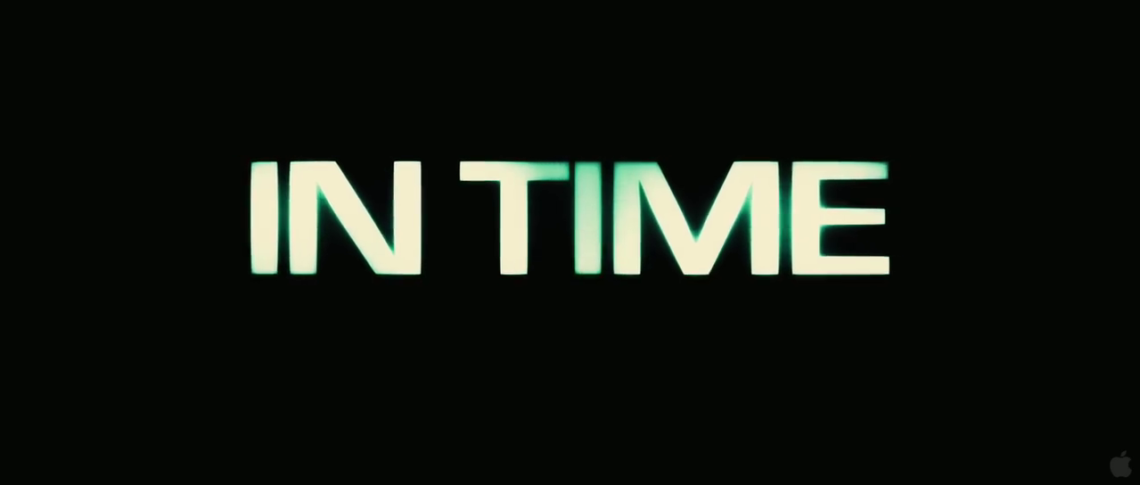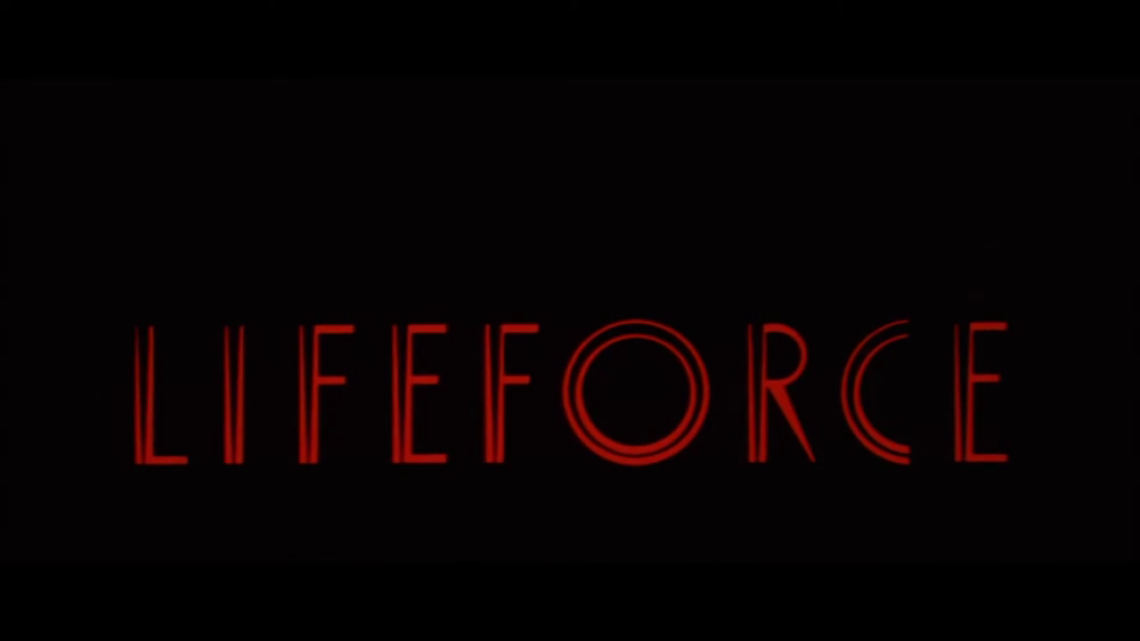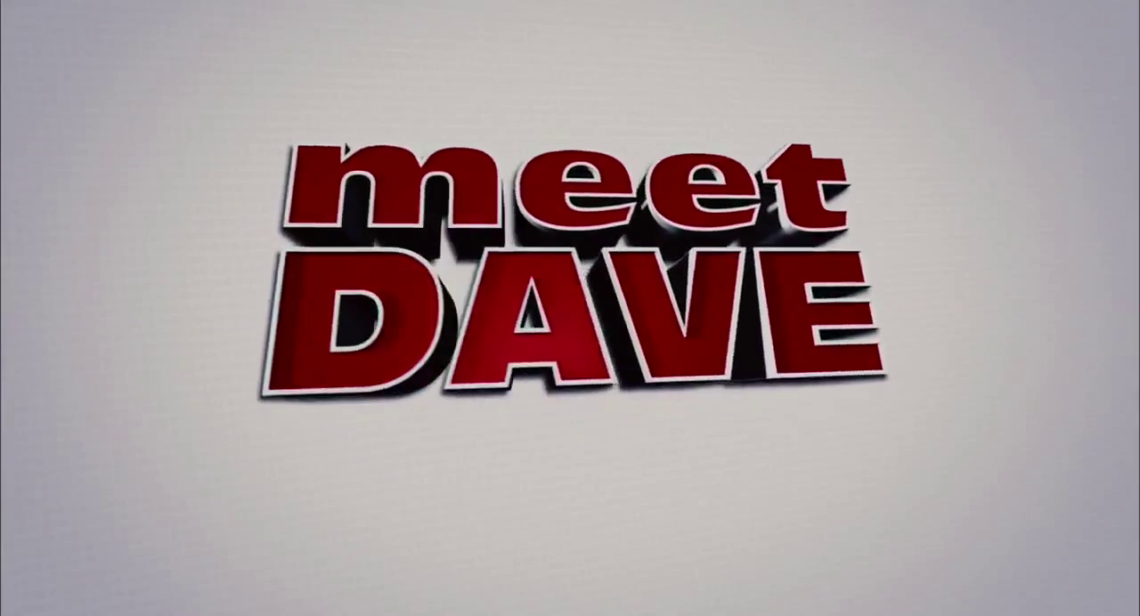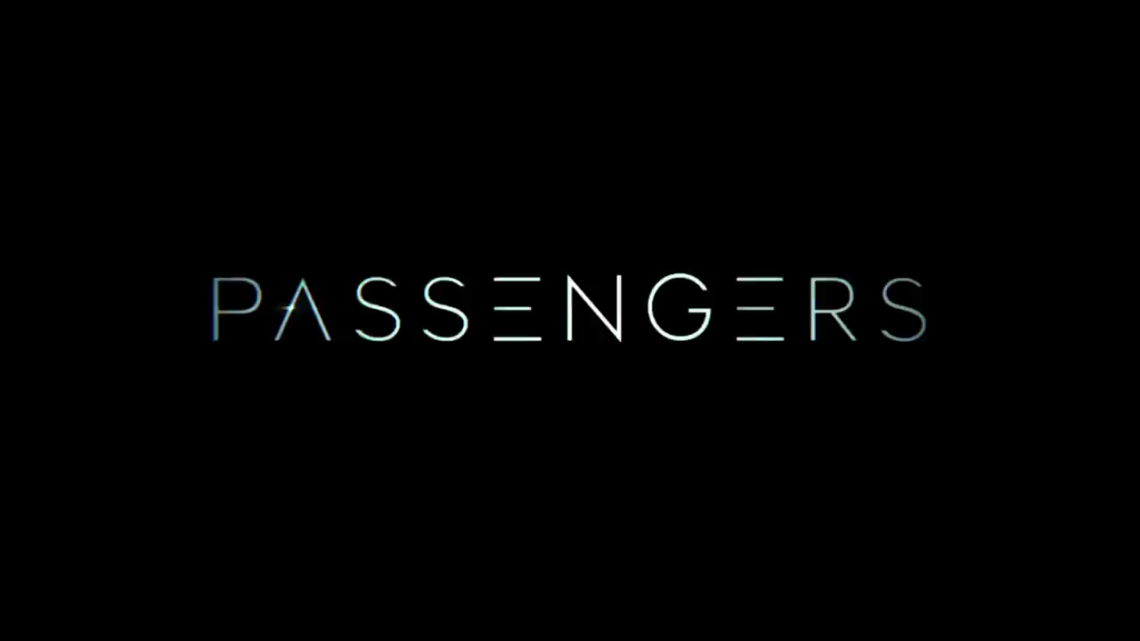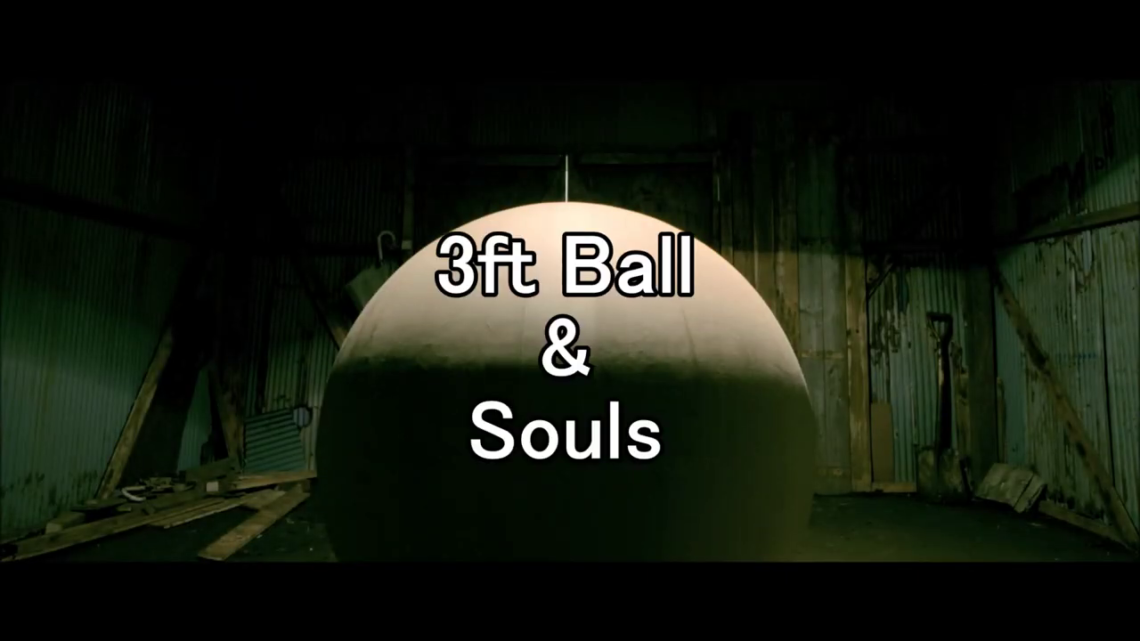-
#601 – The Penitent Man (2010)
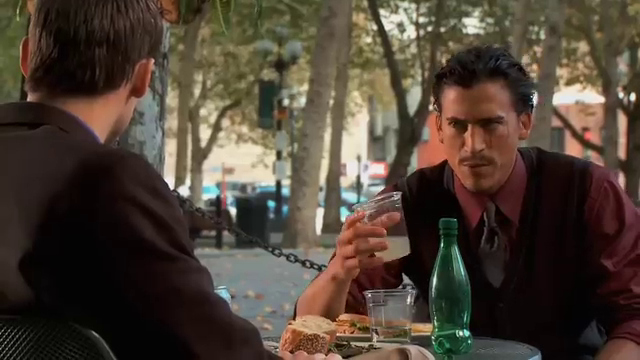
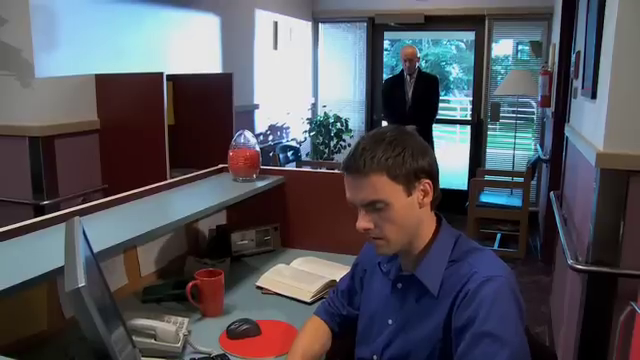
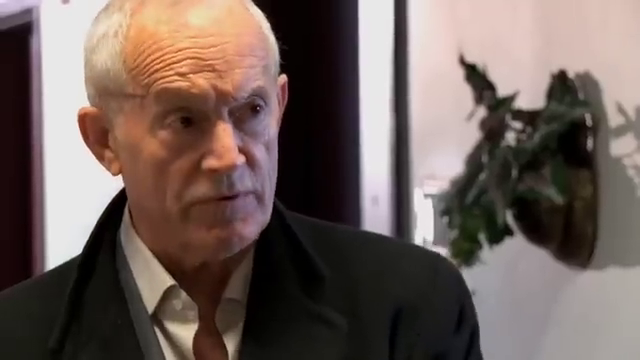
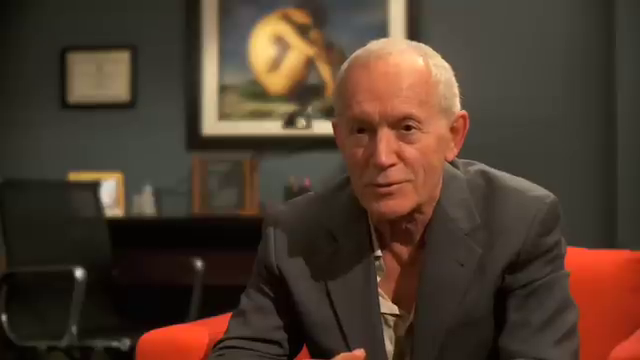

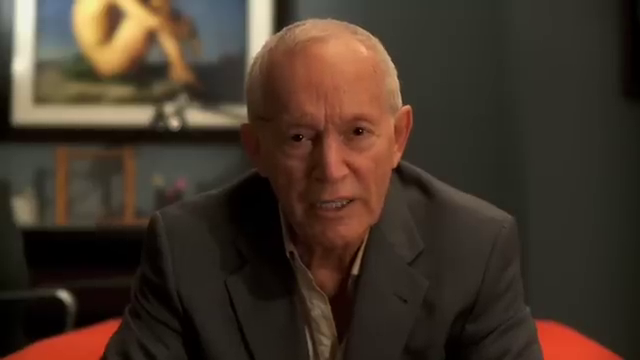
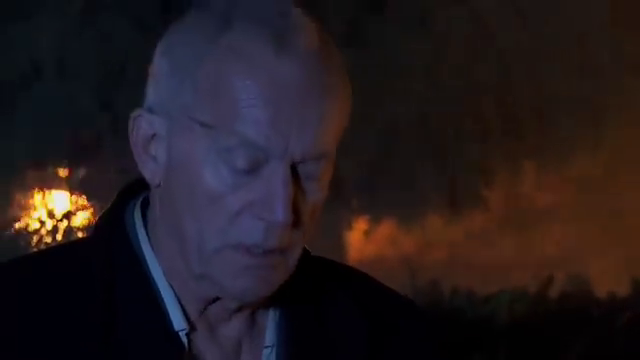
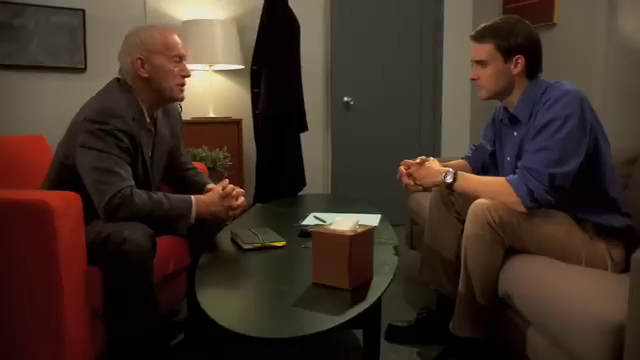

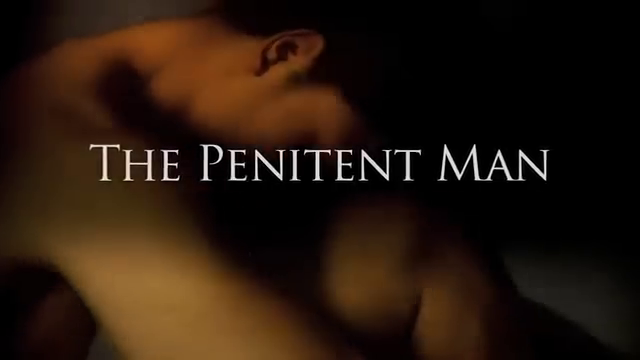
The Penitent Man (2010)
Film review #601
Director: Nicholas Gyeney
SYNOPSIS: A psychologist with troubles with his finances and marriage is visited by a long term patient who makes a startling claim – he is from the future, and he has travelled back to prevent the discovery he made from ever being used, as it brought about the destruction of society as we know it…
THOUGHTS/ANALYSIS: The Penitent Man is a 2011 film. Psychologist Dr. Jason Pyatt is visited by a patient, Mr. Darnell, who he has been sporadically over the past year. He confides in the doctor a secret: that he is from the future, where an invention he made to look through time has caused the collapse of society, and he has travelled back to prevent his discovery from being made. The film is essentially a drama film, with the two main characters sitting and talking, followed by two other characters sitting talking…essentially, there is a lot of dialogue in this film. You may be constantly waiting for something to happen, but nothing ever does. If the dialogue was captivating or explored ideas or concepts with some depth, it would be interesting, but it barely scrapes the surface of its ideas; instead just leaving things as generalities. The fact that nothing is really shown could generate an interesting sense of ambiguity about whether the man is telling the truth, but in the opening scene we see him in the future and time travel, so it just eliminates that avenue for the film to build on.
The whole film feels very amateur-ish, making it feel like someone saw The Room and took it as a “how-to” for filmmaking. The aforementioned scenes of flat dialogue don’t really develop the characters or story, and there’s a severe lack of purpose or direction. The film is also extremely heavy-handed with it’s imagery, and is obsessed with close-ups. For example, the beginning is filled with close-ups of wedding rings on the characters fingers and other paraphernalia to establish them, but it just doesn’t seem really necessary. Another issue is that the plot is entirely predictable, and unfolds exactly as you think it will: you’ll easily guess who Mr. Darnell really is, and who his friend was who tried to stop him. Again, there’s a heavy-handedness and inexperience that destroys any sense of tension or subtlety.
Lance Henriksen as Mr Darnell is the only real good actor in this film, but even then, he feels misdirected, and working with a poor script. his scenes with Dr Pyatt (Lathrop Walker) feel so uneven because of the chasm of talent between them. Scenes between other characters are completely devoid of interest, and no one seems to know what to do with the camera during these long scenes, and it sometimes just focuses on a character who is being spoken to, which is very odd. It’s easy to sum up this film as a very amateur and misguided attempt at being a smart film: the acting is dire, the camerawork lacks direction, the plot is predictable, the imagery is heavy-handed, and again, it really feels like someone took The Room as a guide for how to make films. There’s nothing really redeemable about the film, or anything interesting to take away from it, as it’s dull characters and completely predictable plot just leave you waiting for the film to end.
-
#600 – In Time (2011)
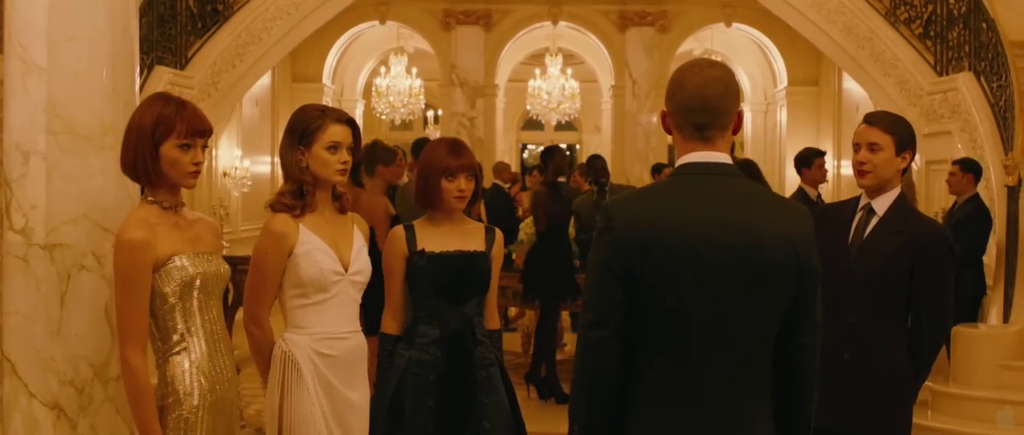
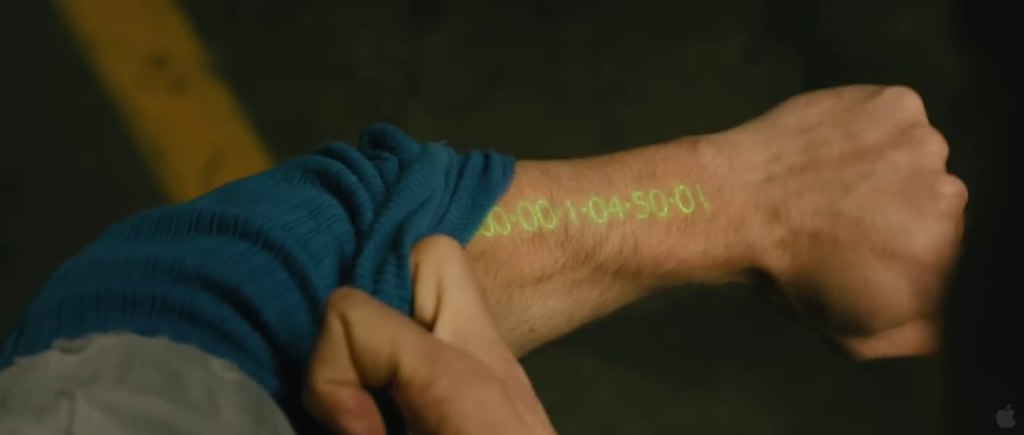
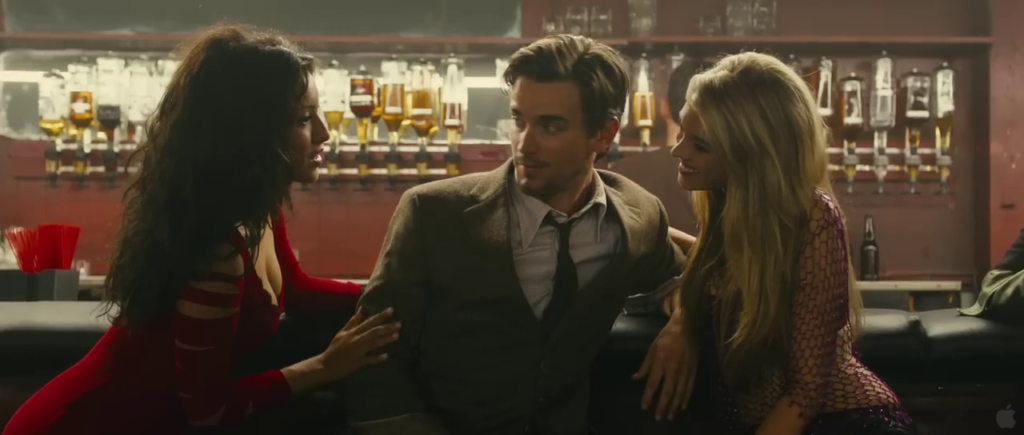
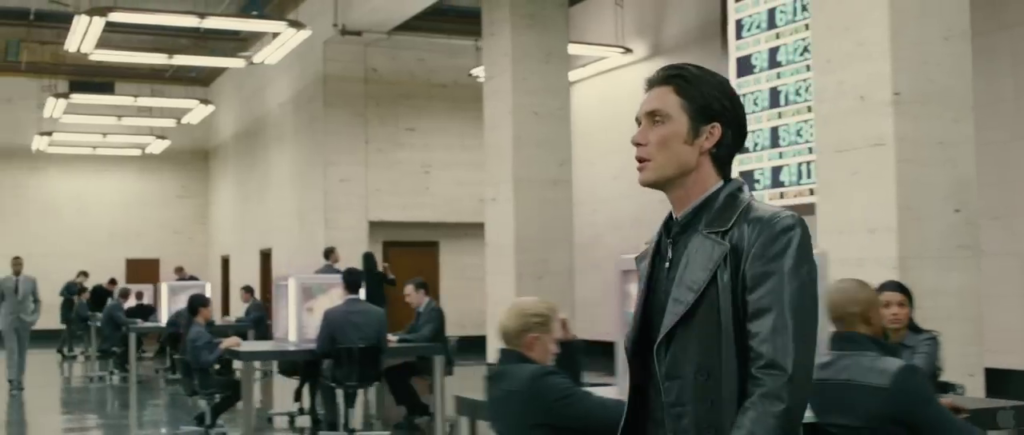
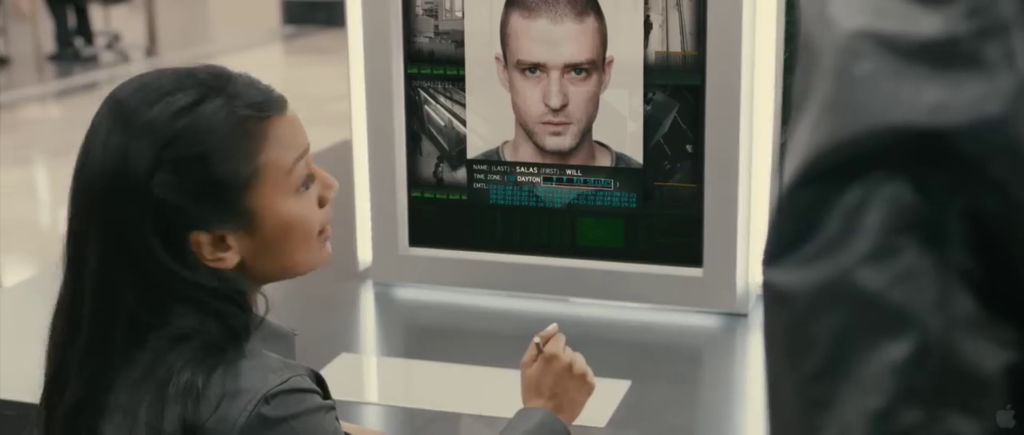
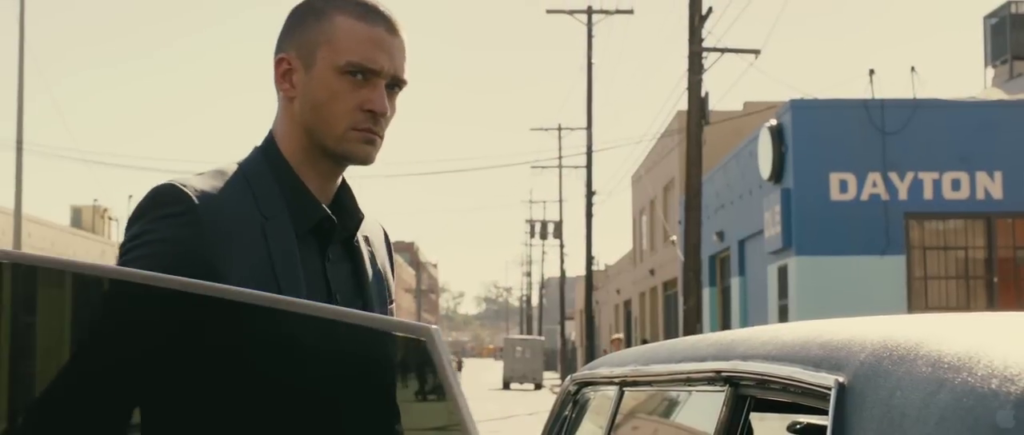
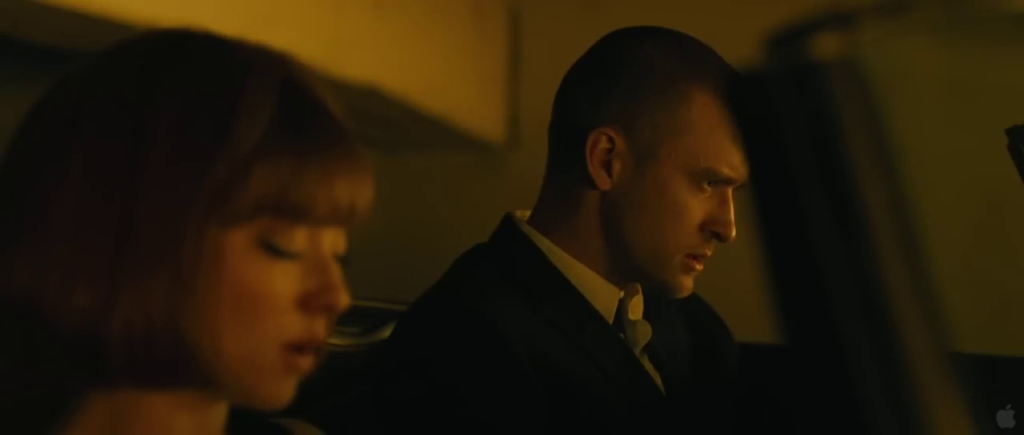
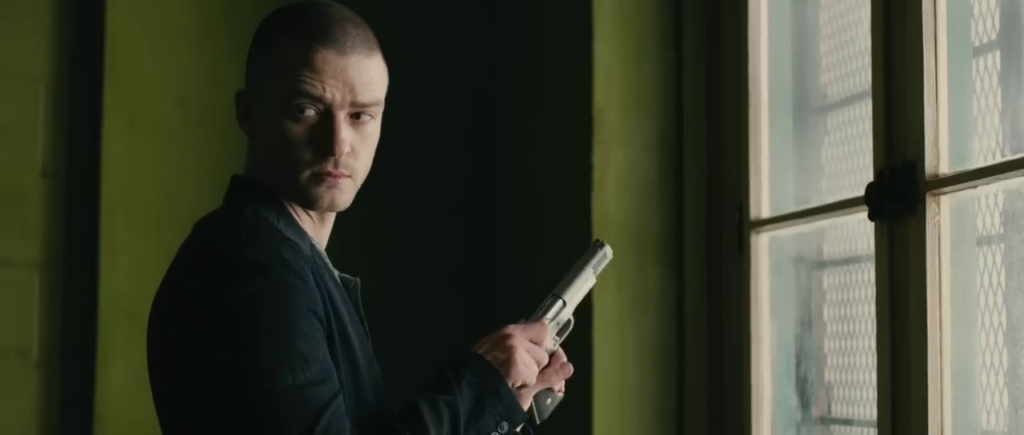
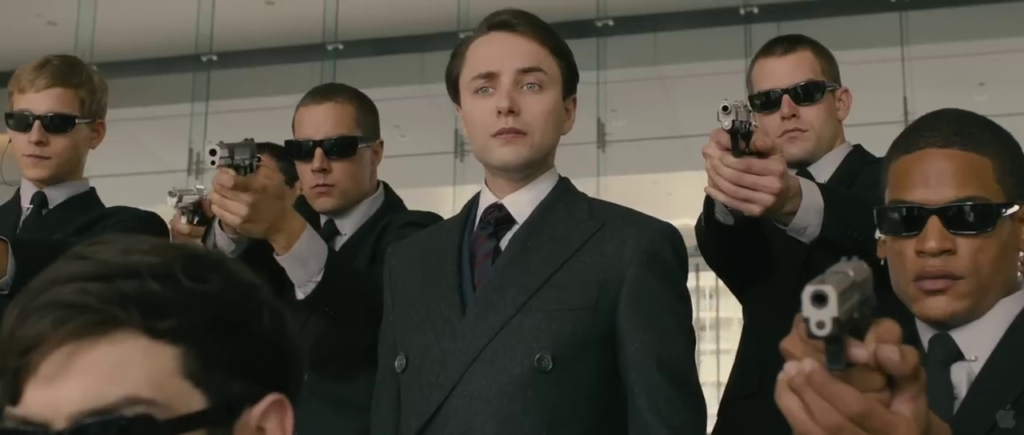
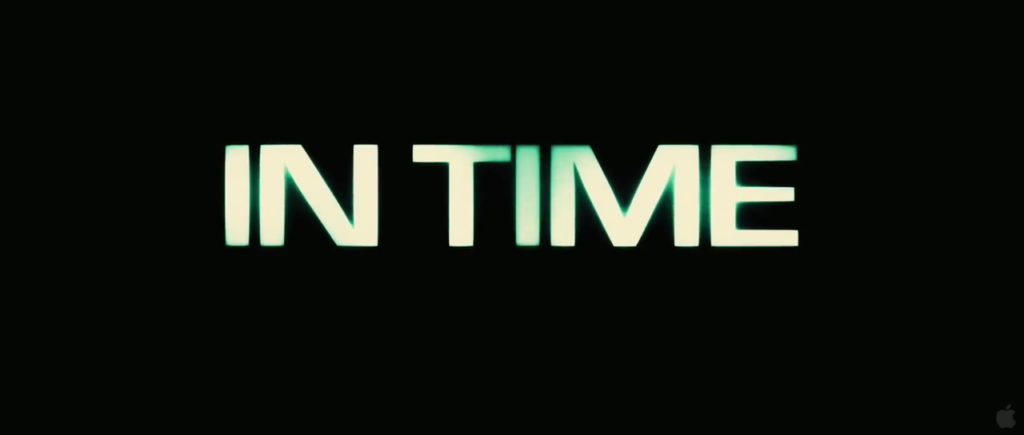
In Time (2011)
Film review #600
Director: Andrew Niccol
SYNOPSIS: In the future, time is the only currency: people stop aging at the age of twenty five, and after, must work to earn time on their lives, as well as using time to pay for everything else. Will Salas works in the ghetto, earning just enough to live day-to-day, when he meets a man at a bar who has over a century left on his life. The man, who has apparently been living over a hundred years, has grown tiring of living, and transfers all his remaining time to Will. Faring that having so much time could upset the balance of the economy, Will becomes hunted by Timekeepers whose job it is to restore order, while Will decides to use his new found time to fleece the system for everything it has…
THOUGHTS/ANALYSIS: In Time is a 2011 sci-fi film. Set in the future of 2169, time has become the only currency, where people stop aging at 25, and must get extra time on their lives by working for it, but also must pay for everything with that same time as well. It’s a fairly interesting set-up, although I don’t think overly novel. The downfall of the film is that it in no way explores the concept it leads with. At the start, we get a scene between main character Will Salas and who we are lead to believe is his wife, but turns out to be in fact his Mother, because everyone stops aging at the age of twenty-five, you would have no idea how old someone was. This seems like some thing that has potential to be explored, but it barely gets a mention. Another big part of the film is the portrayal of the gap between those who have to earn time day-by-day to keep from dropping dead, and those who have hundreds of years on their clock so they can practically live forever, thus creating a dystopia of inequality. The trouble here is, this doesn’t really seem any different than the systems of inequality we have today. Obviously science-fiction works best when it serves as a reflection of contemporary society in some way, but because the film’s concept is not developed or intertwined more closely with the core story, it becomes fairly irrelevant. We are often told about this system of inequality, and how people in the ghetto are fighting to survive, but every scene there is fairly calm and quiet, whereas you would expect people to be constantly fighting each other for seconds or minutes, particularly if they were at the end of their time. Therein lies the problem: the film tells you about the world, but what is shown rarely matches up to that, thus the film really tries to force feed it’s world to you, rather than letting viewers immerse themselves in it to explore for themselves. There’s also the fact that the future is hardly any different than our present, save for the time-based currency: all the cars, buildings etc. are things you would find in any city, and again, you’re just not immersed in this setting.
The plot proper concerns Will Salas (Justin Timberlake), a worker in the ghetto who meets a man from the rich zone with over a hundred years on his clock, who has grown tired of living after over a century. He gives Will all his time while he is sleeping, leaving just enough to throw himself of a bridge when it runs out. When Will’s mum dies as well from running out of time, Will decides to use his newfound time to take everything from the rich. It’s a bit of a leap from Will just trying to survive to becoming a revolutionary, as we aren’t really given any idea about his backstory or anything, and it feels like there’s a bit of a gap between suffering a loss to deciding to tear down the whole system. Will buys his way into the rich zone, and with the help of Sylvia Weis (Amanda Seyfried), the daughter of a rich banker whom Will initially kidnaps, the two embark on a Bonnie and Clyde style set of raids and robberies to distribute time from the elite to the people of the ghetto, disrupting the time-base economy, all the while being pursued by the timekeepers, who enforce the system. Given that the aim given in the film is for Will to bring down the whole system, the film instead just focuses on a constant chase between Will and authorities, never advancing the story in any significant way. In fact, the end of the film just states that they can’t up-end the system, and seemingly ends with the pair on their way to rob another time bank and just do what the film already showed ad infinitum. There’s also a small plot point that hints about Will’s Dad being killed for doing the same thing that he is doing, but this is mentioned off-hand once or twice and never becomes relevant to anything, which makes you wonder why it is mentioned at all.
Overall, In Time offers an interesting set-up, but ultimately fails to do anything with it. We are left with a world very similar to our own, and one that is too similar and thus unengaging, as the film constantly avoids developing it with any detail, or exploring any implications from its core concept. The characters are fairly bland, and Justin Timberlake’s performance hasn’t improved since his role in the sci-fi film Southland Tales, which had the same problems there. Unresolved plotlines, a lack of direction, and an absence of depth leave the viewer with a film that’s simple enough to follow and a bit of style, but wholly lacking in substance and direction.
-
#599 – Lifeforce (1985)
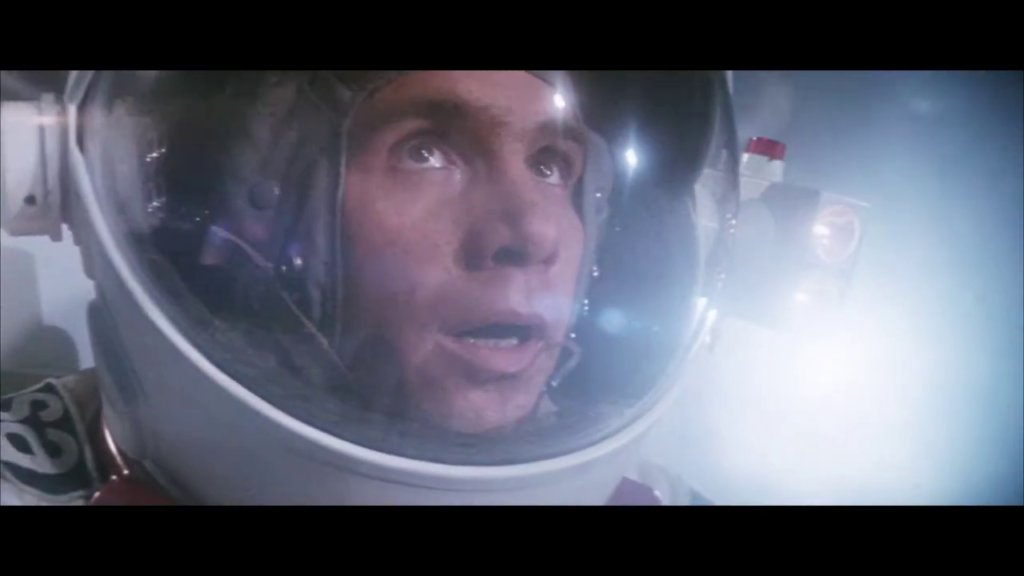
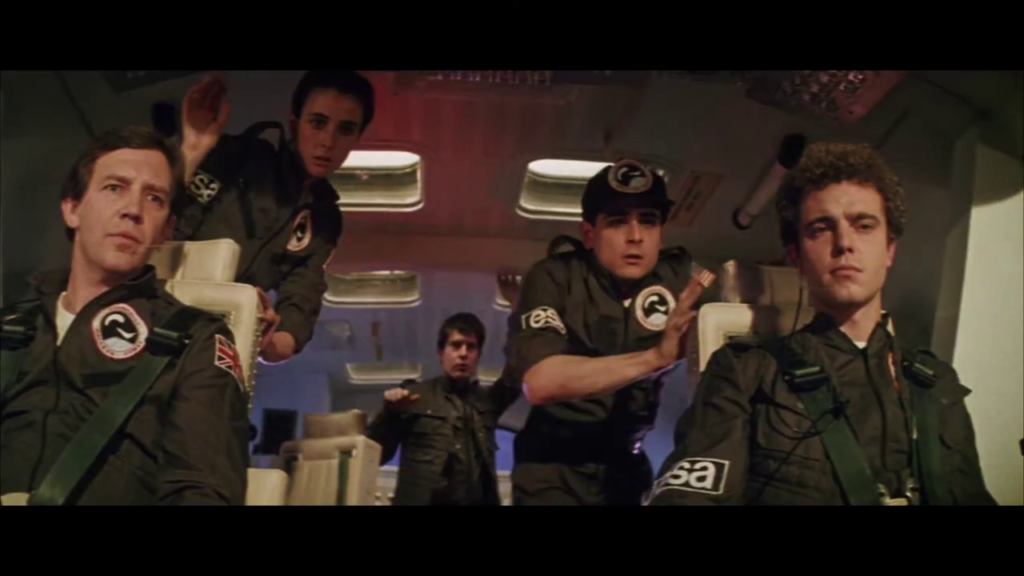
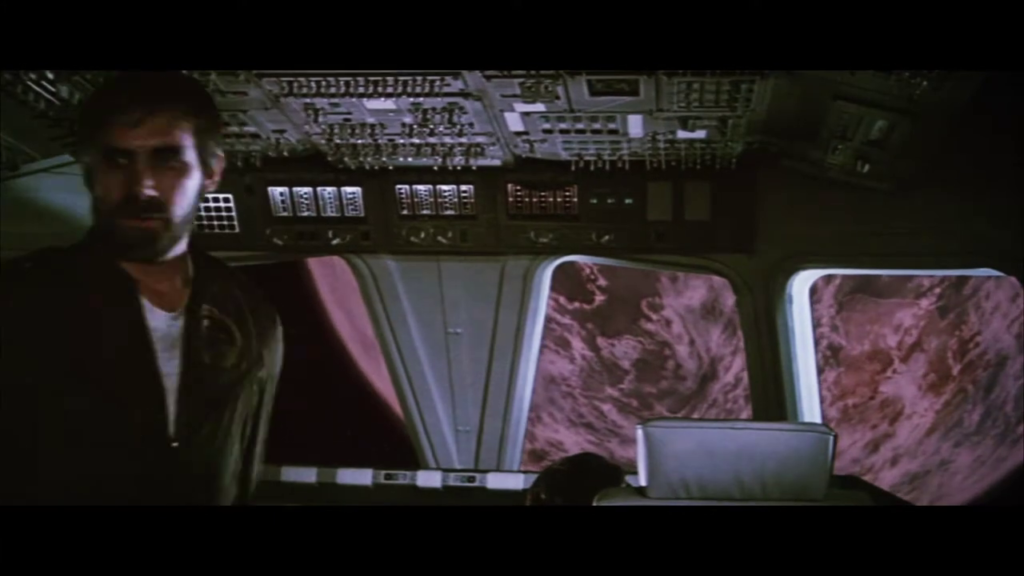
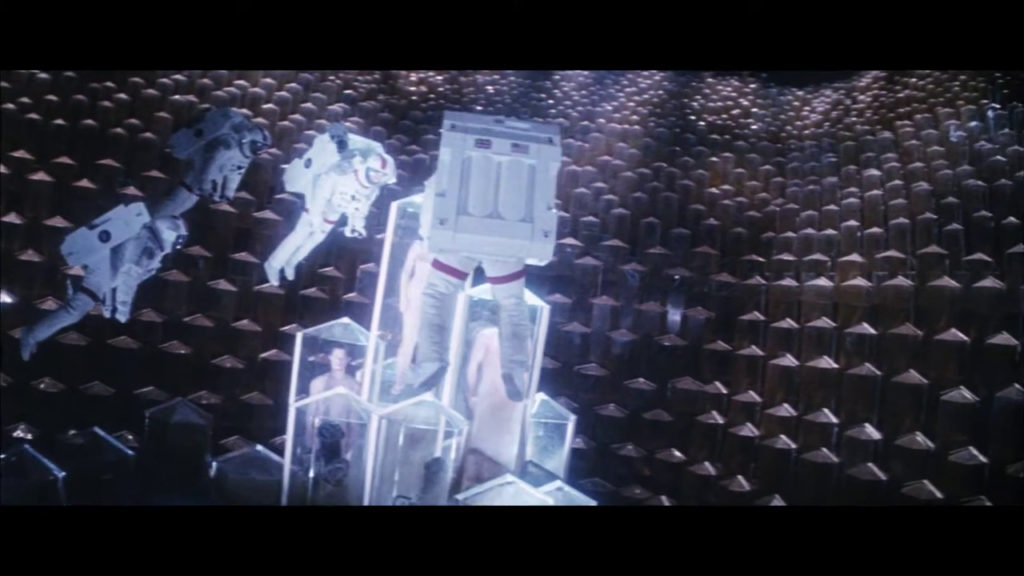
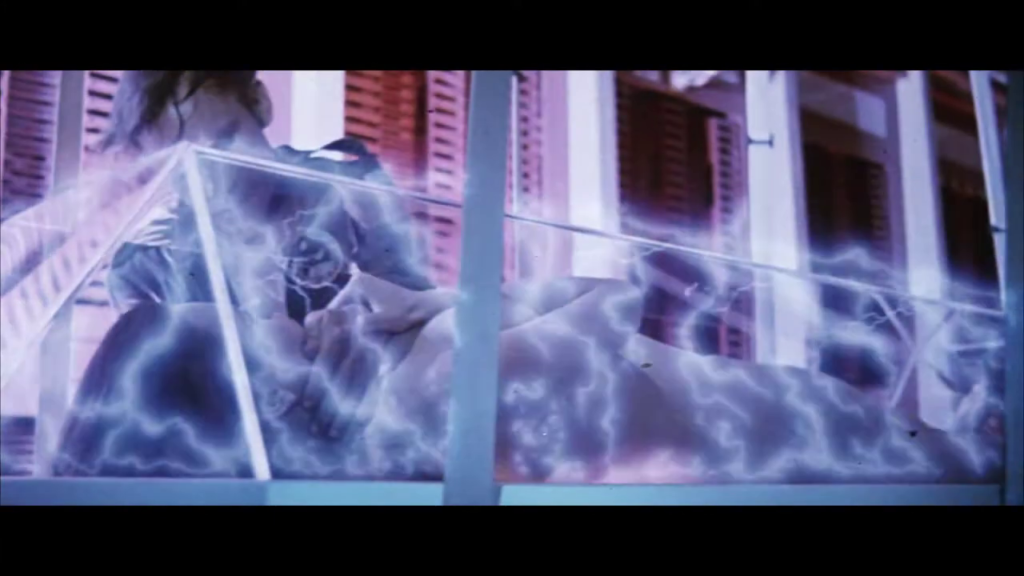
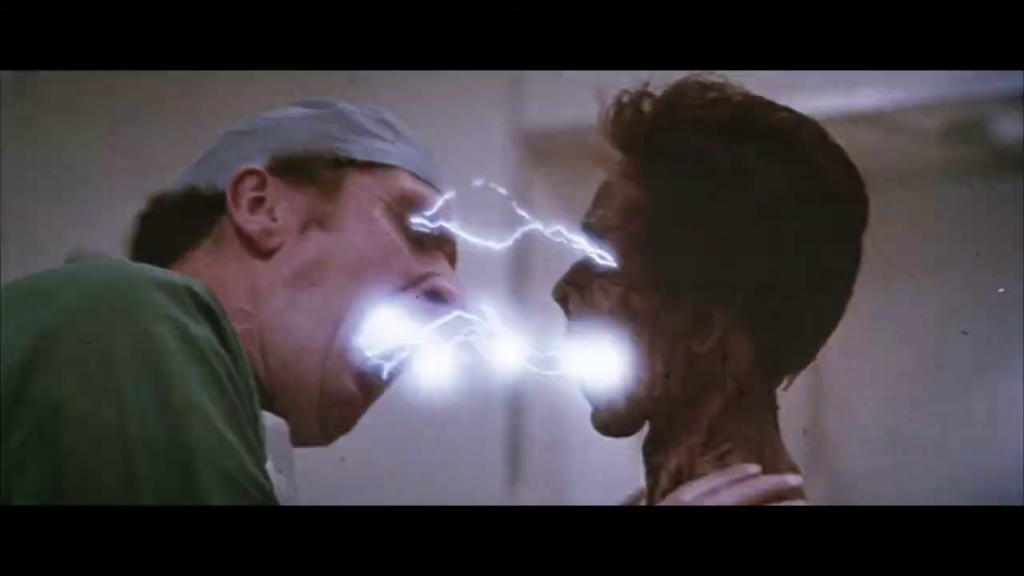
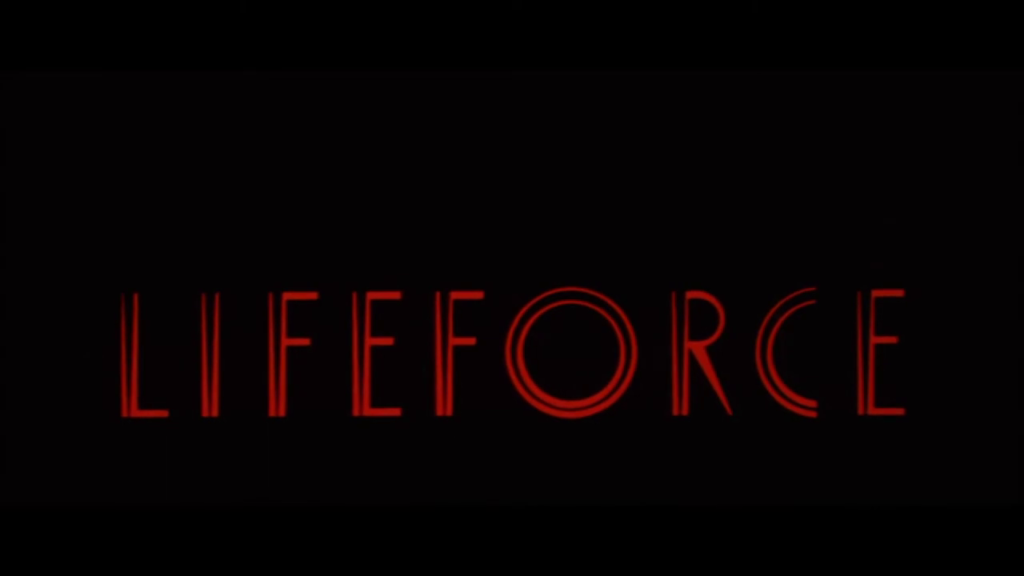
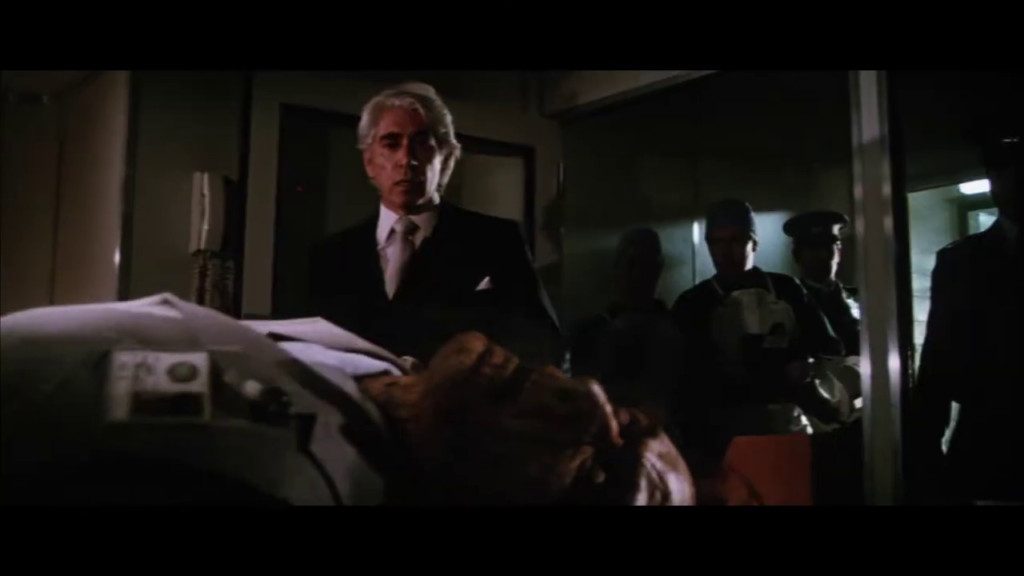
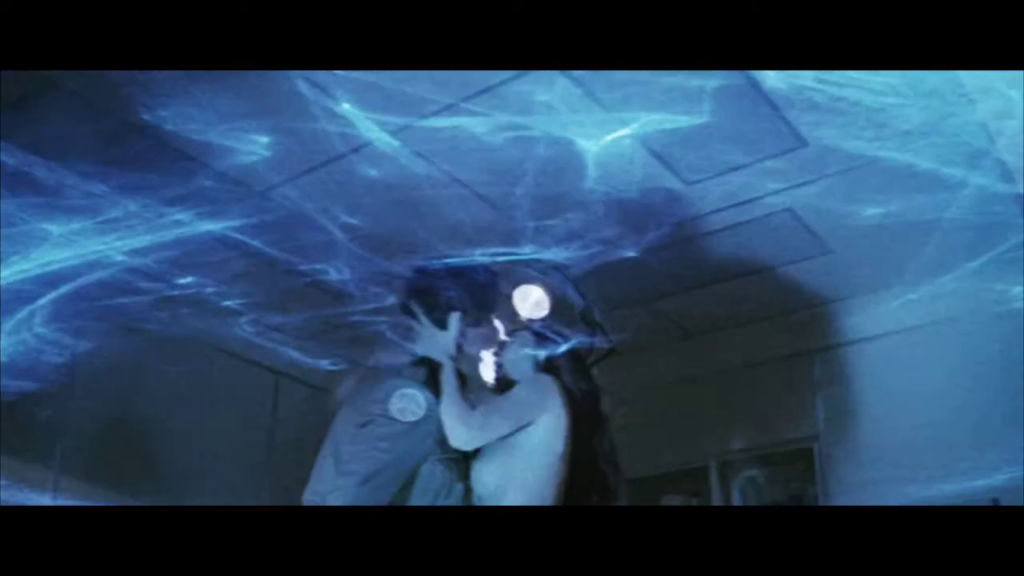
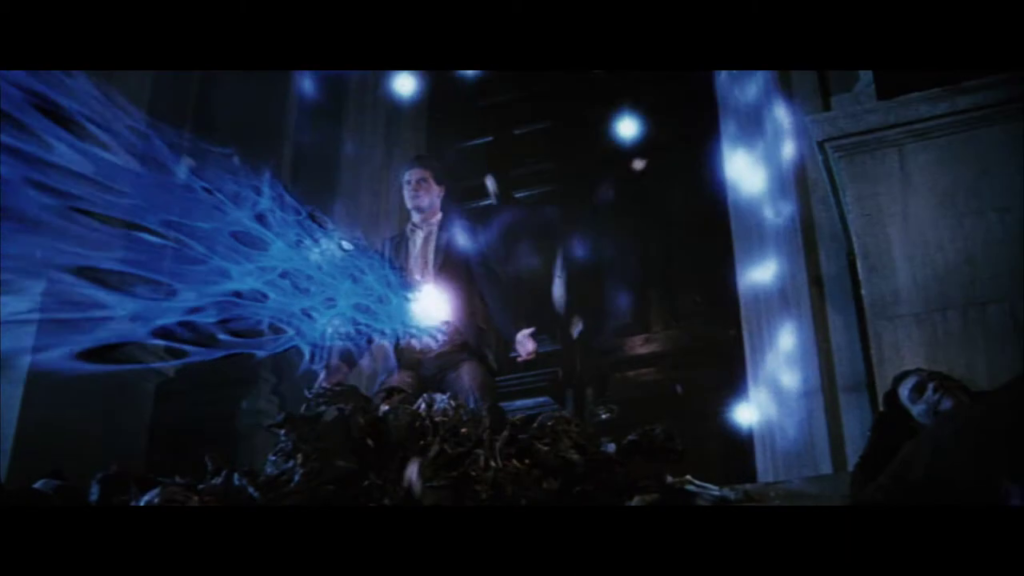
Lifeforce (1985)
Film review #599
Director: Tobe Hooper
SYNOPSIS: A space shuttle investigating Halley’s Comet finds a ship hidden in it’s wake. Inside they find three humanoid bodies, and bring them back to Earth. Upon arrival, Mission control gets no response, and send another shuttle to investigate. Aboard, they find the shuttle has been destroyed by a fire, and all that is intact is one of the preserved human bodies found on the alien ship. brought back to earth for study, the body wakes up and proceeds to start sucking the life out of people she encounters, setting off a chain effect that turns her victims into “vampire” like creatures that feed off others. Colonel Caine of the SAS joins forces with the sole survivor of the shuttle, who escaped via escape pod, to find the alien and stop her before she turns the human race into soul-sucking vampires…
THOUGHTS/ANSLYSIS: Lifeforce is a 1985 sci-fi film partly based on the novel The Space Vampires by Colin Wilson. A space shuttle investigating Halley’s comet finds a spaceship in its orbit, and aboard, they find three preserved humanoid bodies, which they decide back to Earth. When they are brought back by a second shuttle after the first one was mysteriously damaged and everyone aboard killed, the alien wakes up and starts sucking the life out of people, leading to a race against time to stop her before she infects everyone. Relying on a typical monster hunt with a sci-fi twist in the form of “space vampires,” the film wanders about through different locations and characters without too much direction other than stopping the monster. Everything is played quite low-key without theatrics (apart from a fair amount of female nudity), and the film revels in trying to create an eerie atmosphere more than anything else.
The film just keeps adding in more weird elements as it goes on, never stopping to really tie things together: there’s a feeling that the filmmakers just wanted to keep going after they could have stopped, turning it into a passion project of sorts. The flimmakers were given a bunch of money without much oversight and sent to make a movie, resulting in a film that you only really get with certain element of creative freedom. I like to call it the Zardoz effect: when a film has little to no oversight and creative juices just run wild, creating a product which never settles neatly into being a “good” or “bad” film, and refuses categorisation due to a certain restless creative energy. Lifeforce, to be clear, is nowhere near the brazen, lucid, fever dream that Zardoz is, but there’s just enough weirdness to make you think twice about how to judge it.
There’s not really much to the characters, although the performances are pretty good: the film relies more on atmosphere than stand out personalities. One part of the film which does leave an impression is the practical effects, with the scenes of people having their lifeforce sucked out and becoming deflated husks having that creepy horror vibe actually rather impressive, and a testament to the power of practical effects. Overall, Lifeforce takes the classic b-movie monster schtick and runs with it past its limits, and just revels in the thrill of making films. The result is difficult to judge in terms of good and bad: it’s just bizarre, although not enough to really make it stand out.
-
#598 – Meet Dave (2008)
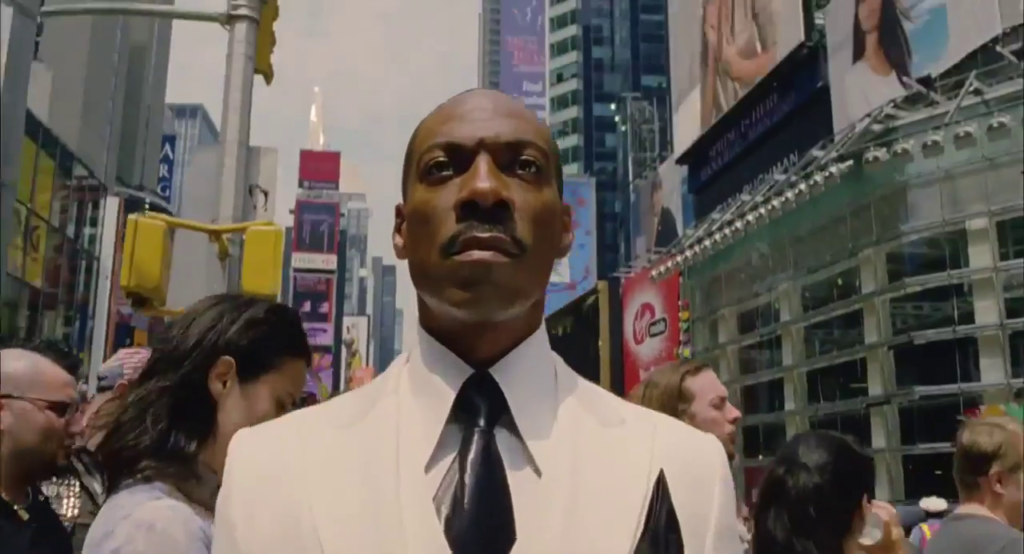
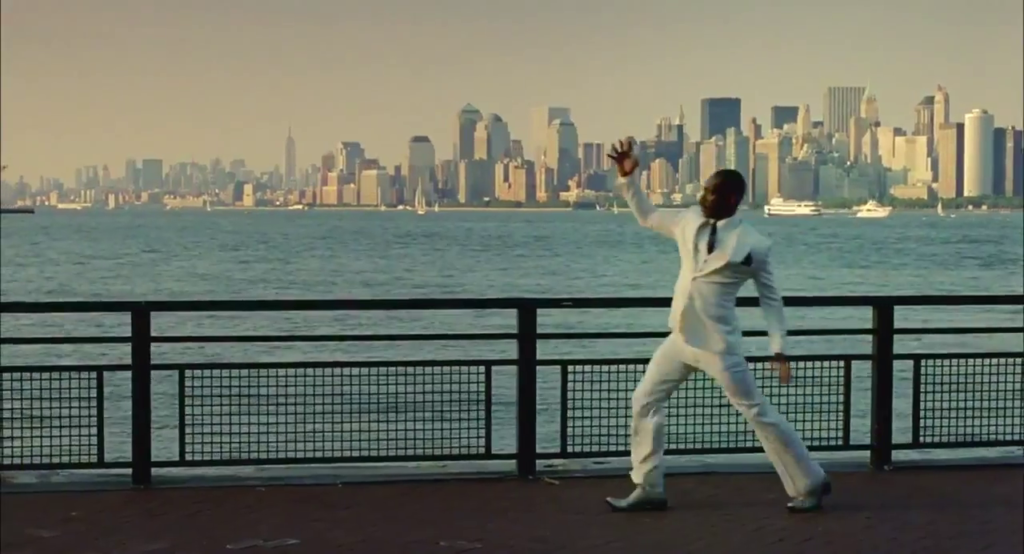
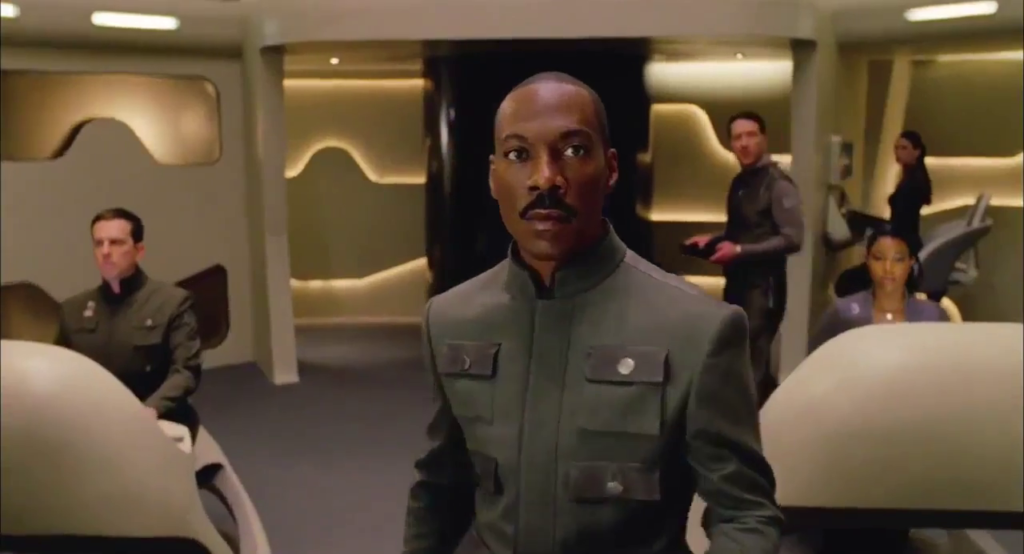
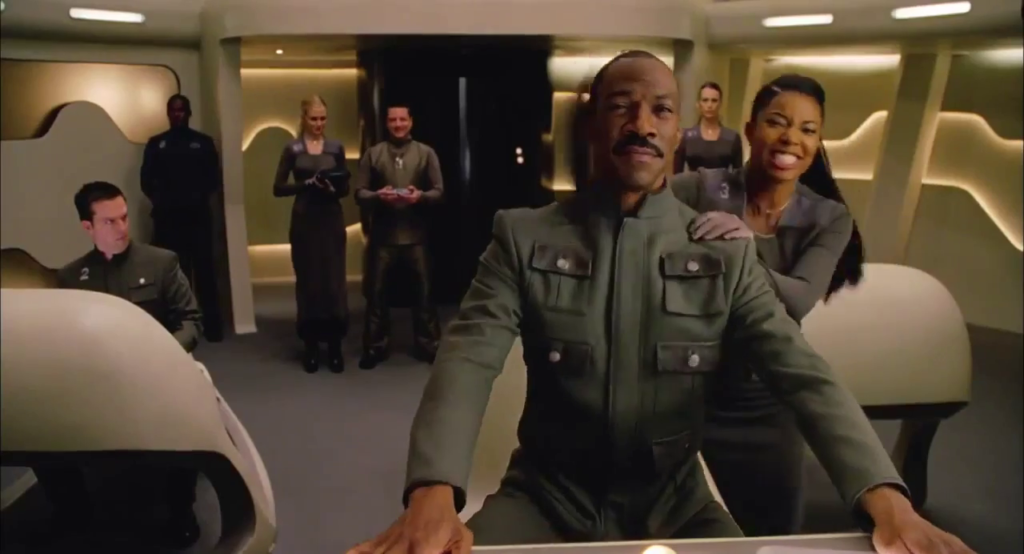
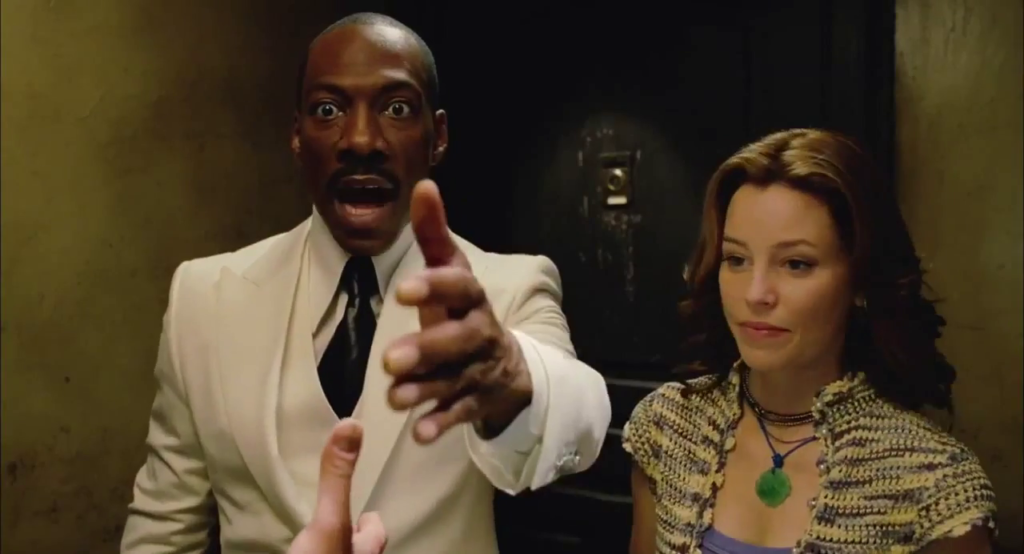
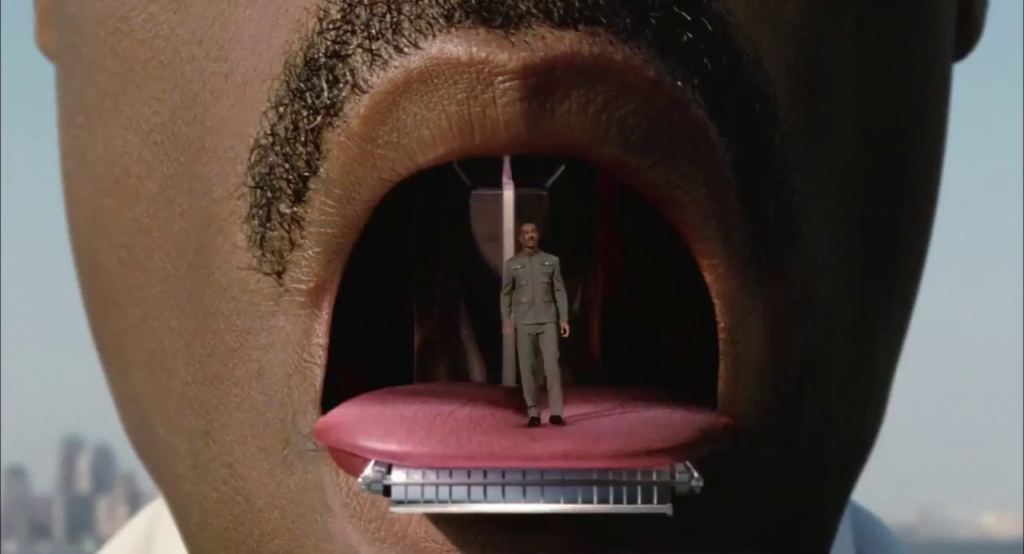
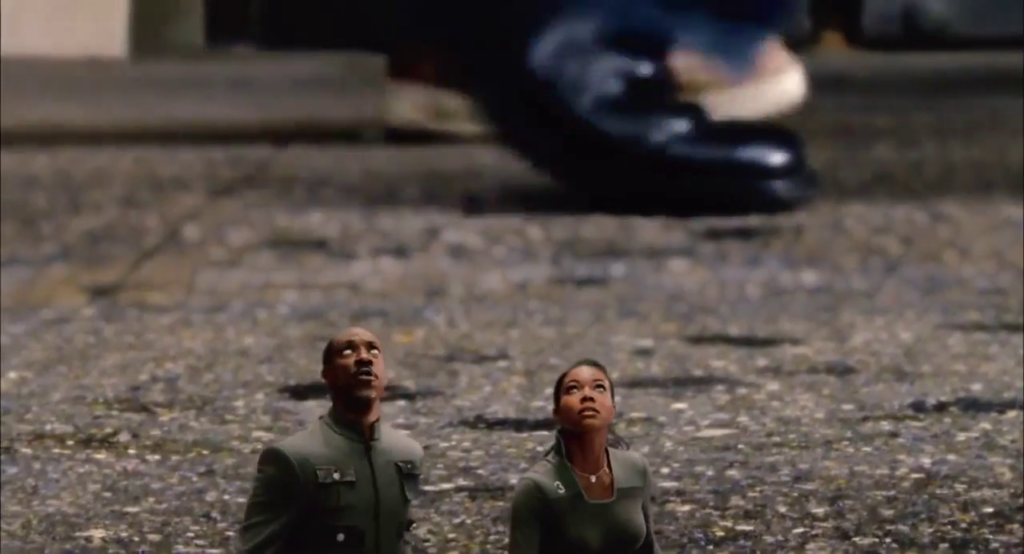
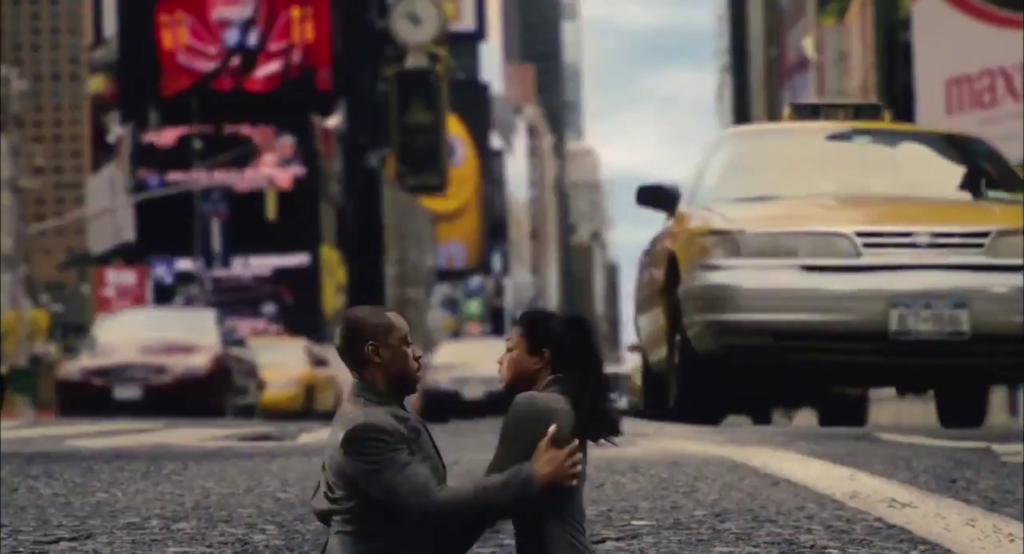
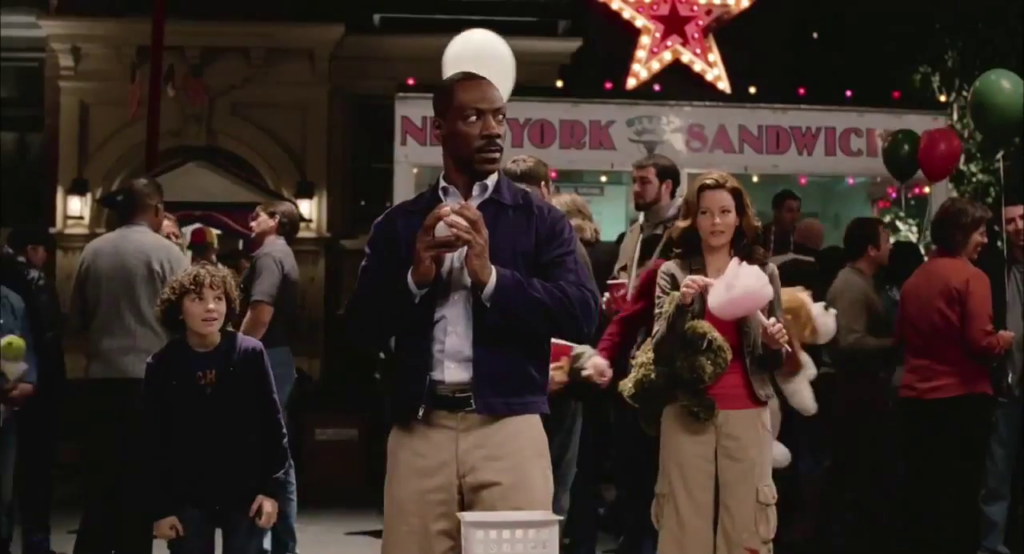
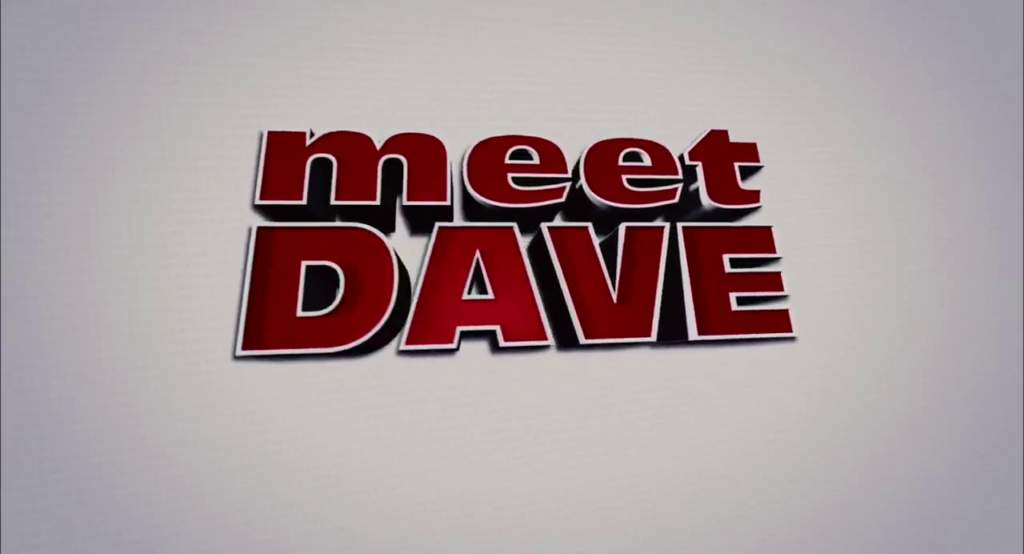
Meet Dave (2008)
Film review #598
Director: Brian Robbins
SYNOPSIS: An alien spacecraft in the shape of a human lands on Earth in search of a device that landed months earlier, that will drain the salt from the Earth’s oceans. Piloted by a crew of smaller humans (including the Captain who is the spitting image of their ship), they attempt to blend in with the crowds of New York City. Befriending a single Mother named Gina, the aliens learn about Earth and grow to admire it’s population. But as this threatens their mission to save their own planet at the expense of earth, not everyone is happy with this…
THOUGHTS/ANALYSIS: Meet Dave is a 2008 sci-fi comedy film starring Eddie Murphy. The film begins with a meteor falling to Earth and being found by a young boy. A few months later, a spaceship in the shape of a humanoid falls to Earth to look for the meteor, which is in fact a device to drain the Earth’s oceans of it’s salt. The ship is piloted by a crew of tiny humanoid aliens, including the Captain, whose image the ship is apparently based on, and the ship, attempting to blend in as a human, heads around New York City to find the meteor so that the aliens may save their own planet. Meeting Gina, a single Mother who accidentally hits “Dave” (as the crew refer to themselves), with her car, the two strike up a friendship and as the Captain learns more about the Earth, the less he is willing to sacrifice it to save his won world. The story is a very predictable affair, jumping from set piece to set piece that are each familiar and well worn in similar movies. Everything also feels very cartoon-ish, and unable to develop any depth. Gina’s friendship with Dave never expresses something more profound; in part due to her scatter-brained character, in part because I think the film maybe wanted a romantic element to it, but it never goes in that direction either. This is compounded by another issue I will mention later. There also just doesn’t seem to be any direction to the plot at all: sure, the aim is to recover this meteor, but it never feels like that is the primary concern. Even when it is recovered, the film just carries on doing things which don’t further the story or deepen the character’s relationships.
A lot of the film’s issues undoubtedly stem from the film being passed around a lot of different writers before it was finalised. Apparently, the film originally was going to be a bit more adult-oriented, but nowhere is this evident in the final version, which seems to just had every element neutered by the chain of writers that seem to have imagined the film for different audiences. Again, this leads to the film avoiding any sense of depth at any point, as the script tries to meet itself half-way at every possible point. The film is unable to create a significant connection between Dave and Gina, it resolves Josh’s “bully” problem in one quick scene, and the ending that romantically links Gina and her neighbour is something that more or less comes out of nowhere: there’s one brief scene prior to the ending that hints at a romantic connection, but it in no way builds itself up to be one of the take-aways of the film. We also know next to nothing about these aliens home world, culture or anything of the sort, which makes it difficult to understand just what they are getting from their experiences on Earth.
I suppose if you want a positive from this film, Eddie Murphy works well in the lead, given a fair amount of space to be his animated self. It’s just a shame the script doesn’t offer him much more. Gina (portrayed by Elizabeth Banks) is again animated and energetic, but her spritely aloofness renders her character a caricature unable of fathoming any emotional depth. Number Two as the villain is bland, ands again, because we nothing about these character’s backgrounds, it makes it difficult for them to stand out. Kevin Hart’s role as a kind of cutaway slapstick character is pointless: mostly because one; Eddie Murphy’s character has that role, and overshadows anything Hart does. Two, he clearly has no creative room to do anything interesting other than just scream a bit. If this was a more adult-oriented film, then maybe he could cut some more significant and risqué, but as it stands, he barely has anything to do. Production values are also fairly sloppy with some atrocious greenscreen effects for the time.
Eddie Murphy has been quoted as saying his role in Meet Dave is among the worst he has been in. It’s hard to disagree with that, although I don’t think it’s really his fault: the script has no direction, depth, or any idea who it’s aimed at, thanks to being shredded and blended by a mix of writer’s that results in a middle-of-the-road venture that doesn’t even try to stretch itself beyond that centre. It’s no offensively awful in any way, it’s just bad in the sense it’s unoriginal and uninspired, opting for safe, well-tested jokes and scenarios, ultimately wasting the talent it has on board.
-
#597 – Passengers (2016)
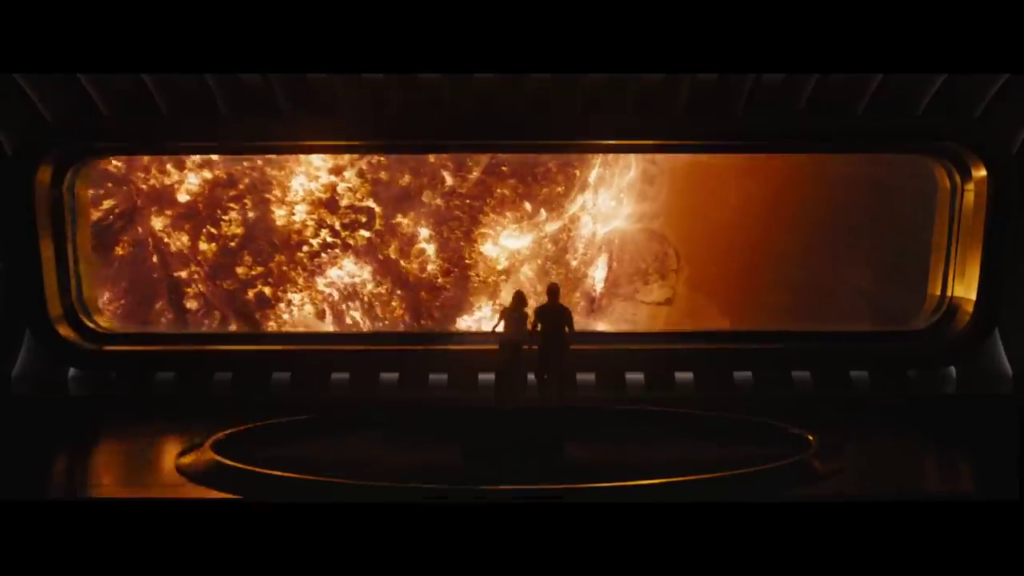
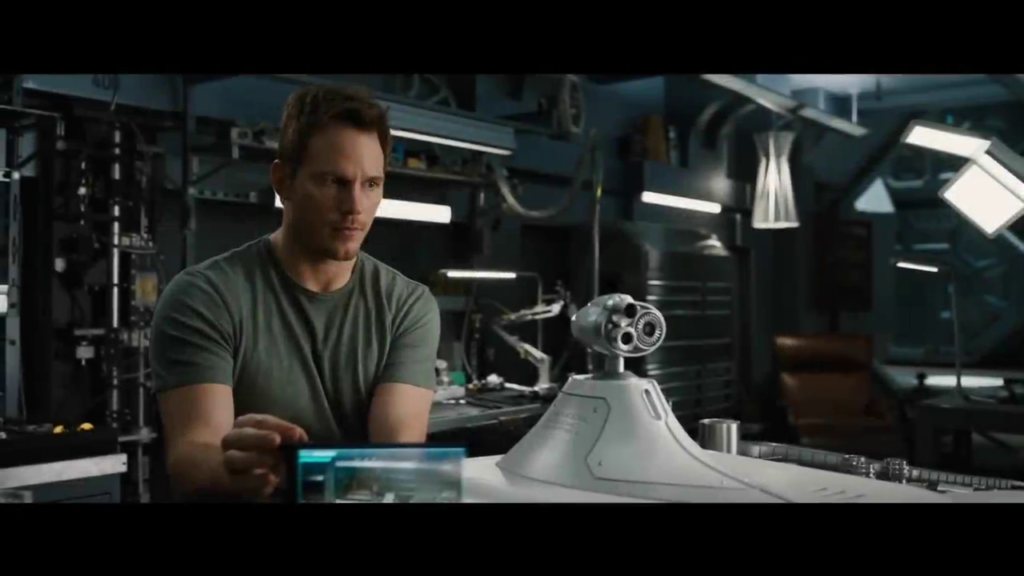
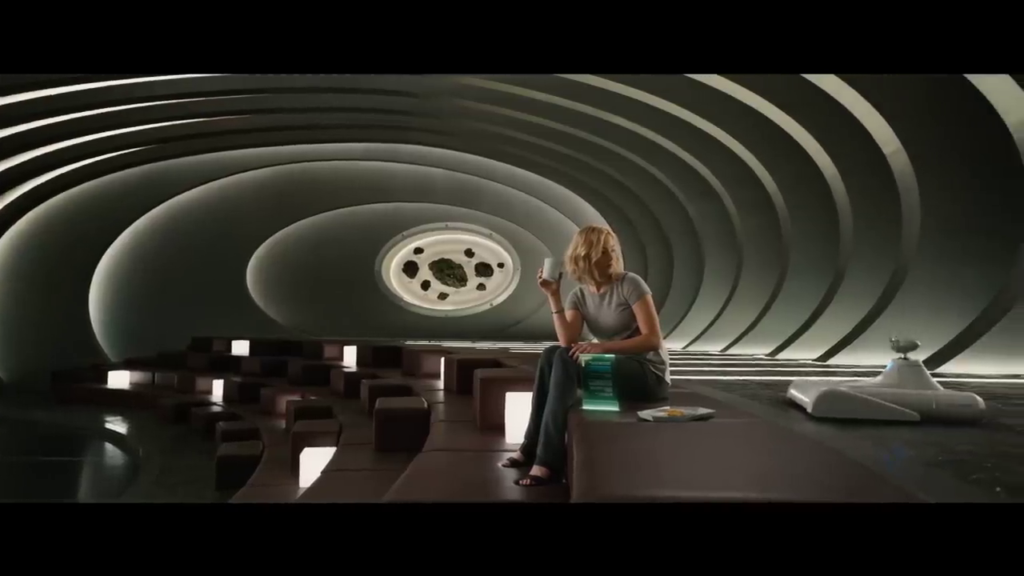
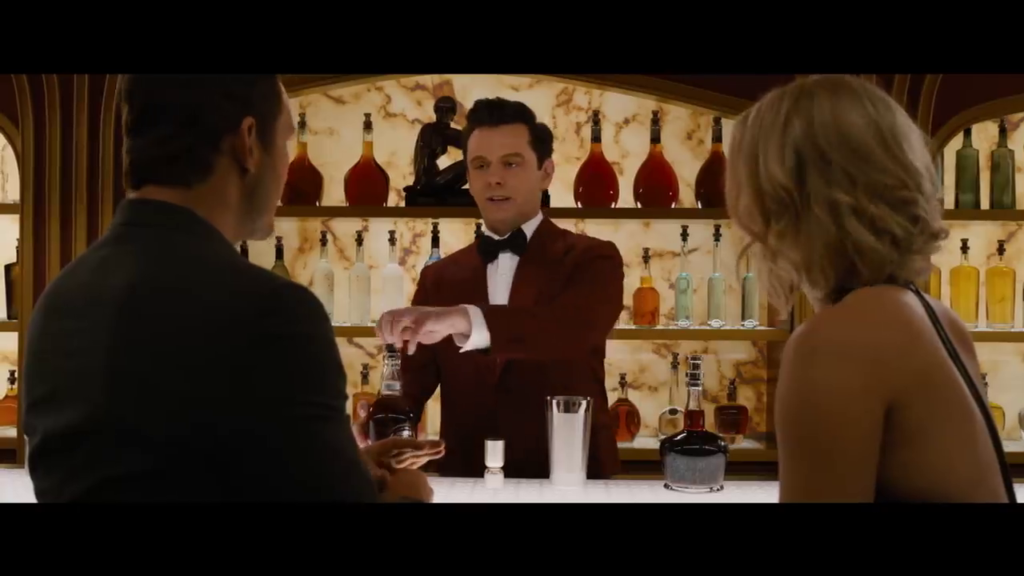
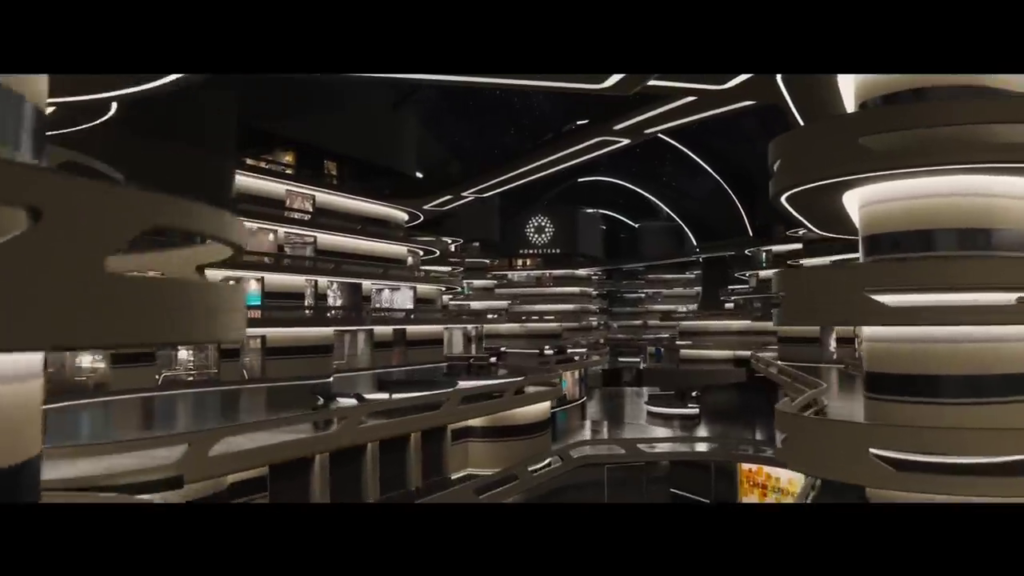
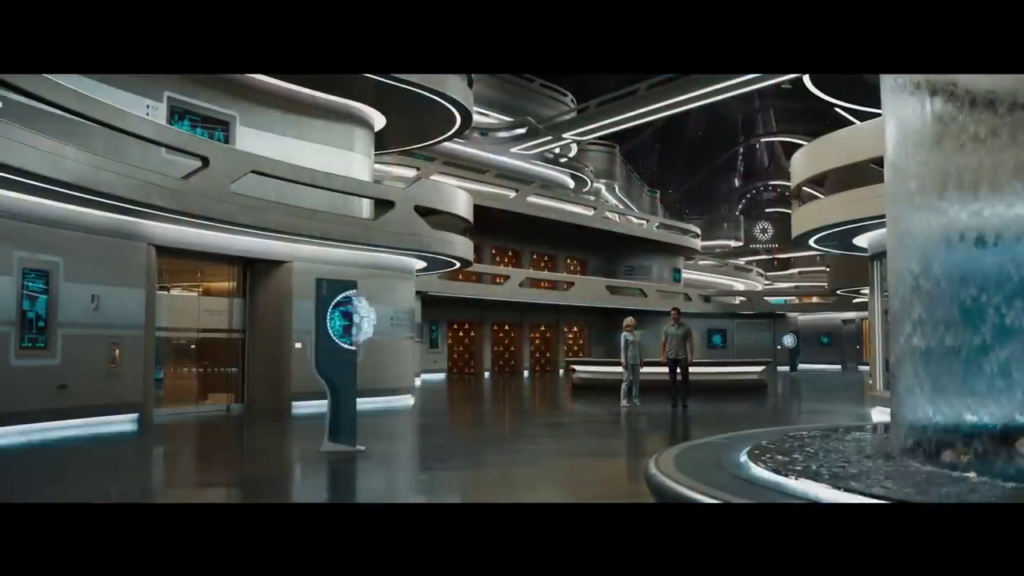
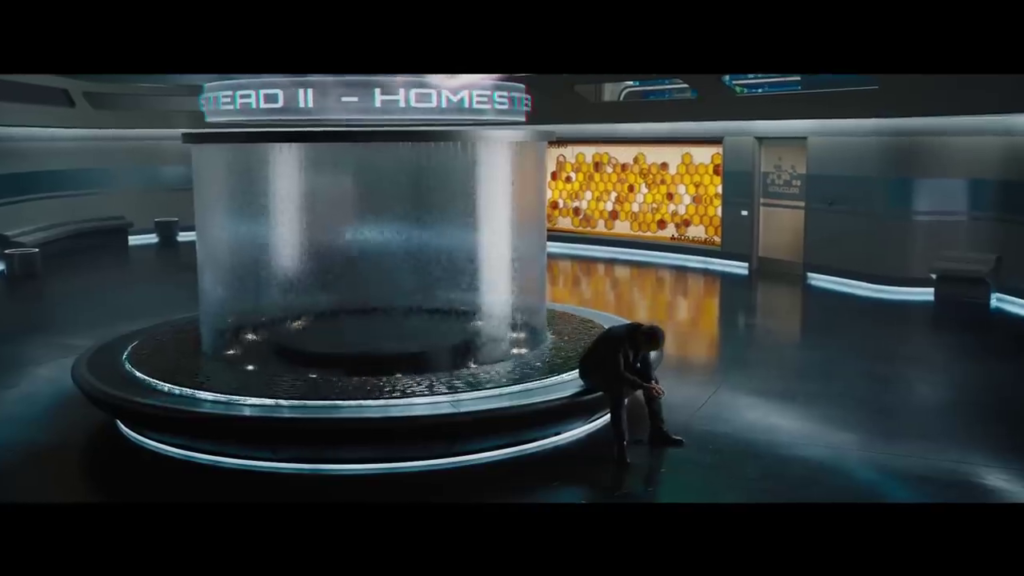
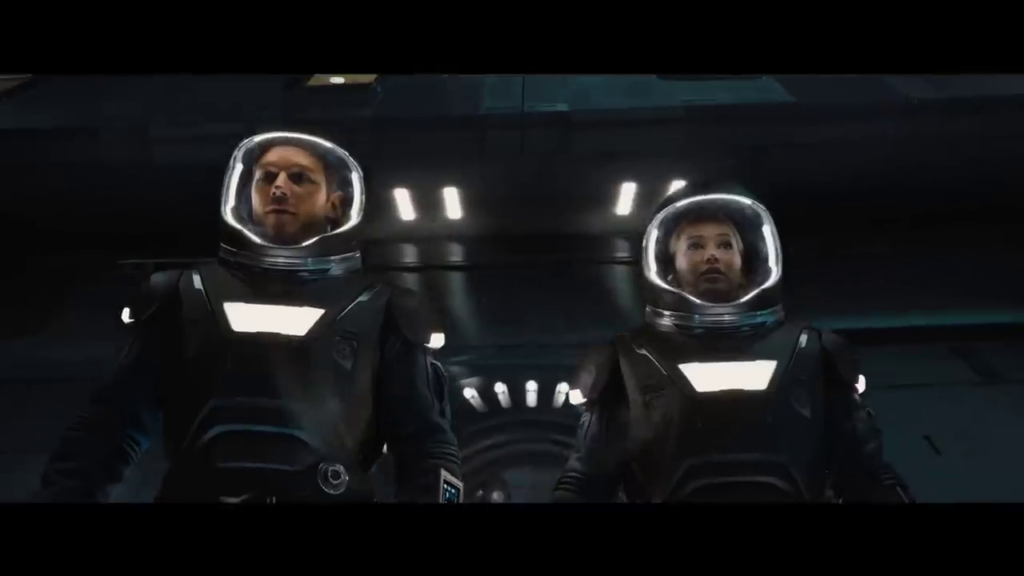
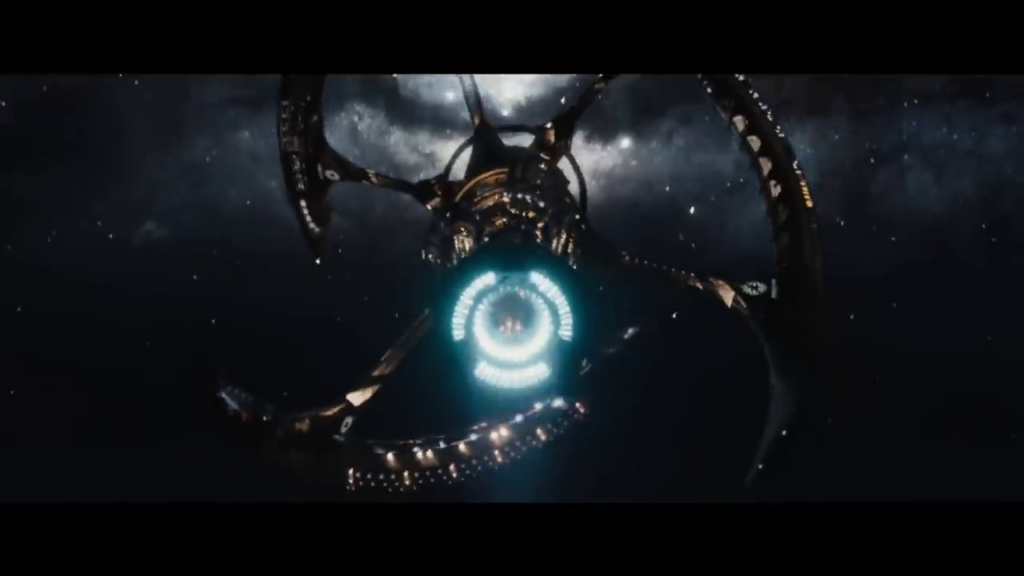
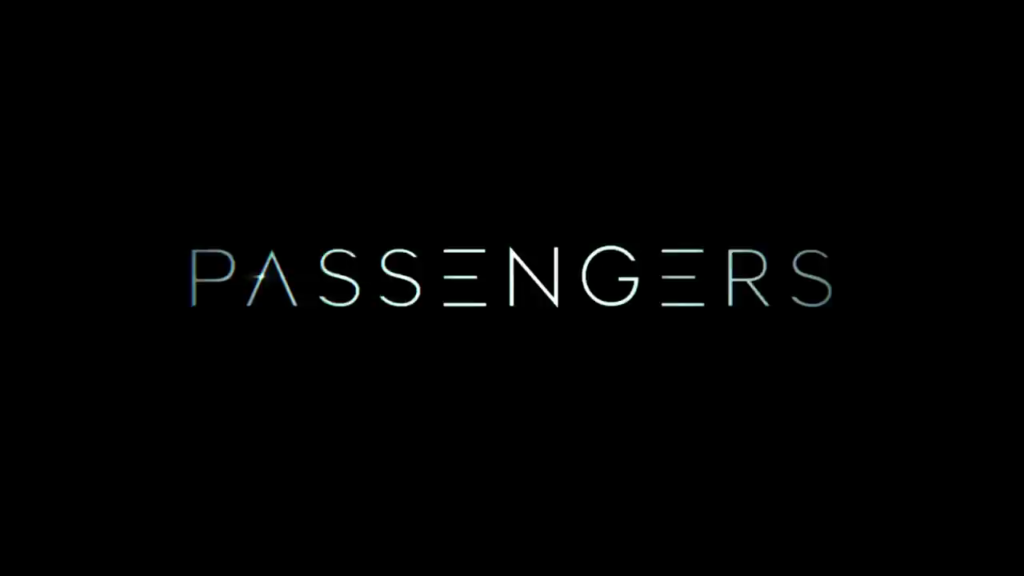
Passengers (2016)
Film review #597
Director: Morten Tyldum
SYNOPSIS: A Spaceship transporting colonists to a new planet is thirty years into it’s journey when Jim Preston is suddenly awakened from cryo sleep unexpectedly. being the only person woken up, and with ninety years to go until the voyage is complete, Jim spends a year alone, unable to return to sleep, until he, in desperation, releases another person, Aurora Lane, for companionship. However, the malfunction that woke Jim up threatens to extend to the entire ship, and the pair must work out what the problem is in order to save the lives of everyone aboard still in stasis…
THOUGHTS/ANALYSIS: Passengers is a 2016 sci-fi romance film. Set onboard a spaceship that is carrying its passengers and crew in cryogenic sleep on a one hundred and twenty year journey to a new planet. Thirty years into the journey, Jim Preston, a passenger, is suddenly awakened from sleep unexpectedly due to a malfunction. Unable to return to sleep or to wake anyone else up, he spends over a year by himself (apart from a robotic bartender for company), eventually becoming more and more depressed and desperate from company. In desperation, he wakes up another passenger, Aurora Lane, a writer who he has been learning about, lying about the fact that he woke her up and blaming on a malfunction instead. The story is focused on a romance story rather than anything else, offering very little novelty with the science-fiction element. The stand-out dilemma in this is clearly that Jim’s decision to wake up Aurora essentially condemns her to spend her life alone with him, without her consent. The film takes great steps to try and show both the desperation that Jim has for company, and the acknowledgement that what he is doing is wrong, but you can never shake the feeling that what Jim did was ultimately wrong. When the film tries to tie things up neatly with regards to the romance or just overlook that dilemma, it certainly lingers in your mind as a viewer when the film tries to move on.
Chris Pratt and Jennifer Lawrence turn in good performances in the lead roles, and the supporting roles of Martin Sheen and Laurence Fishburne also play their parts well. This is almost certainly one of those films that avoids going too hard on the science-fiction element, in fear of alienating the romance audience. Passengers really seems averse to explaining anything: the fact that the malfunction just so happens to wake up one ordinary person, then later wakes up a senior officer is all very convenient, and we don’t really get a sense of what is going on other than “things are broke, we need to fix them.” Critic’s response to the film blasted it for this lack of depth, but audience reception seems to be more favourable, as they were quite content with the simple story. I think that sums up the film fairly well: lacking in depth and nothing overly special, but easy to watch and mildly entertaining, even if predictable.
-
#596 – 3ft Ball & Souls (2018)
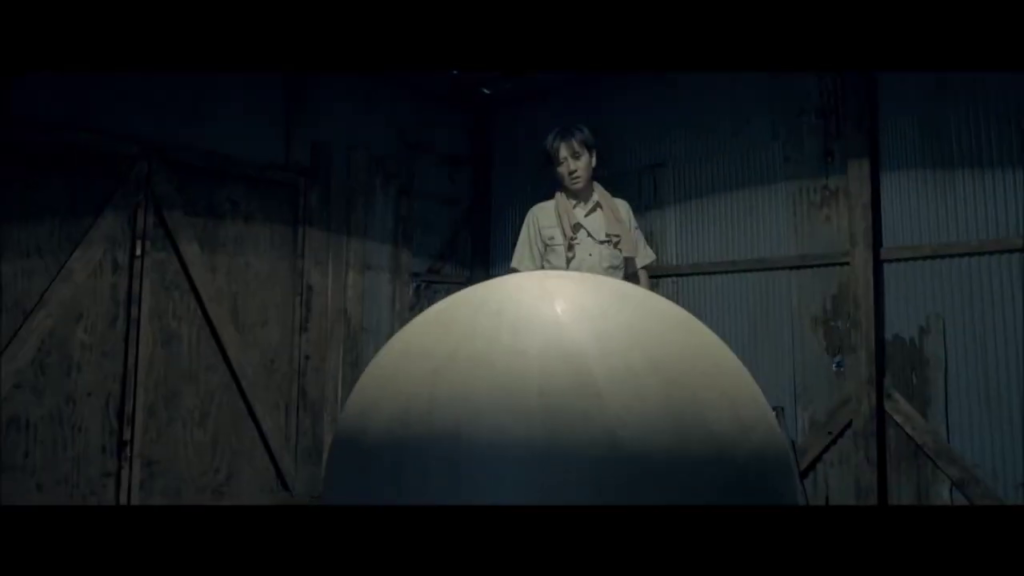
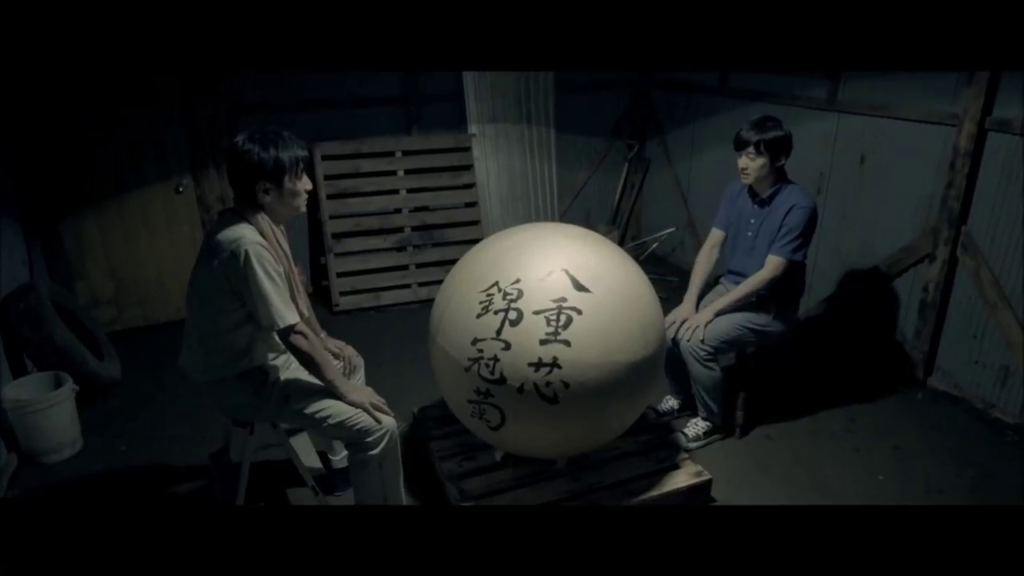
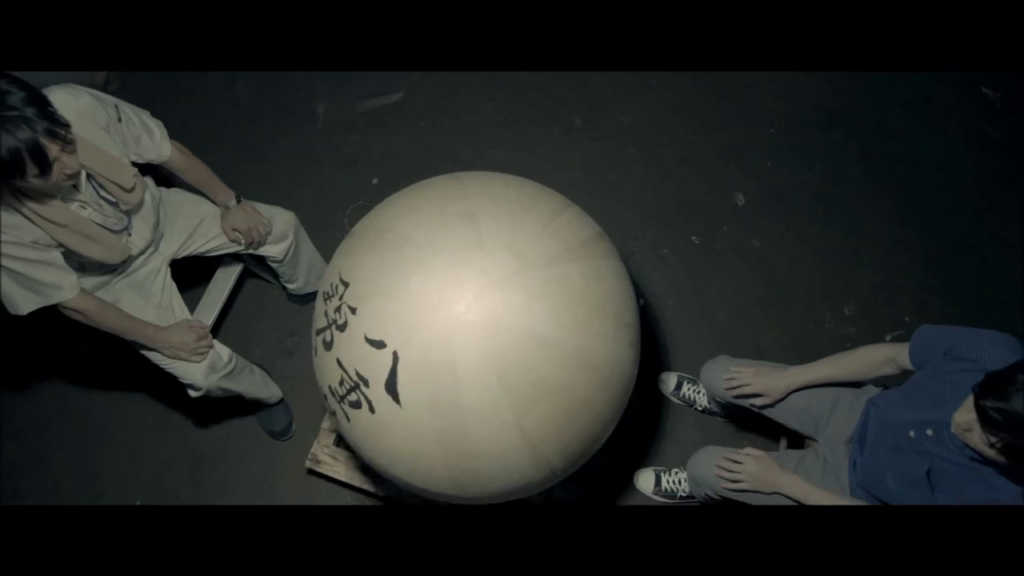
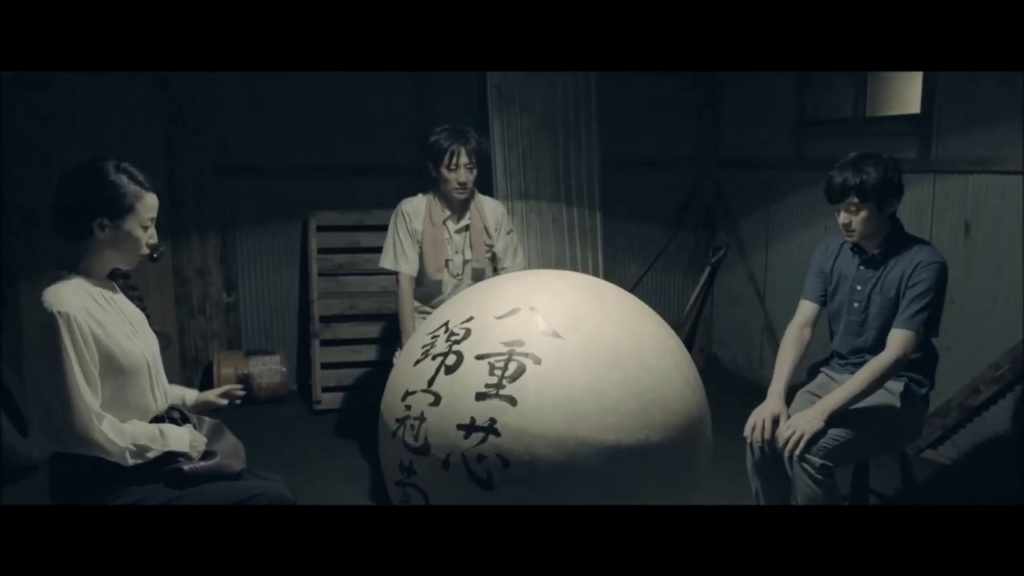
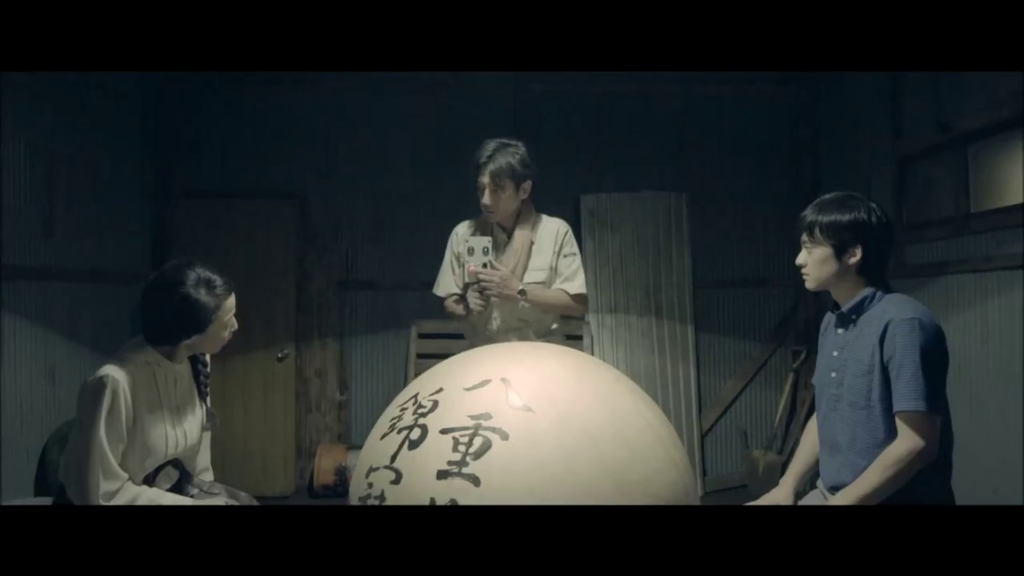
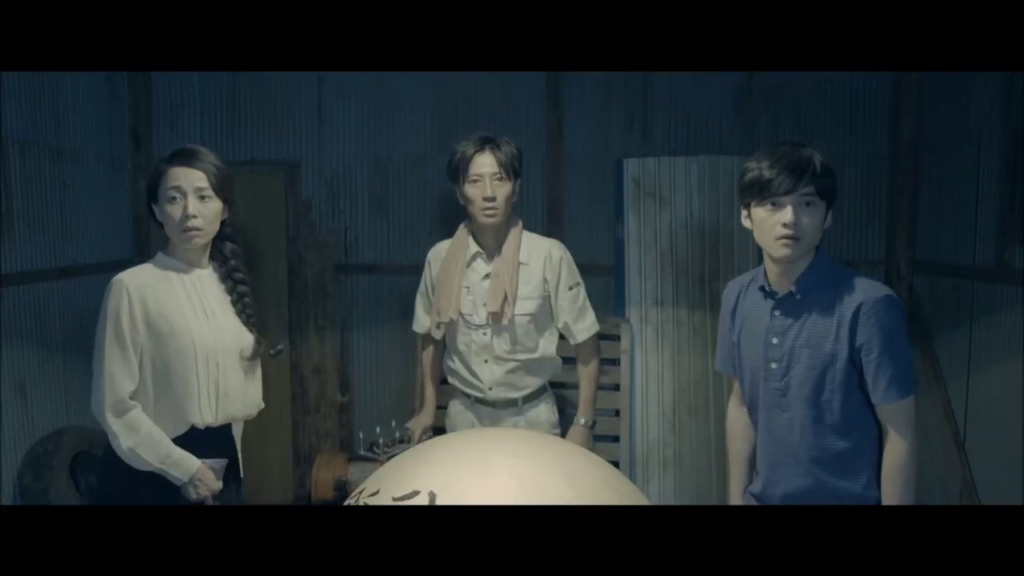
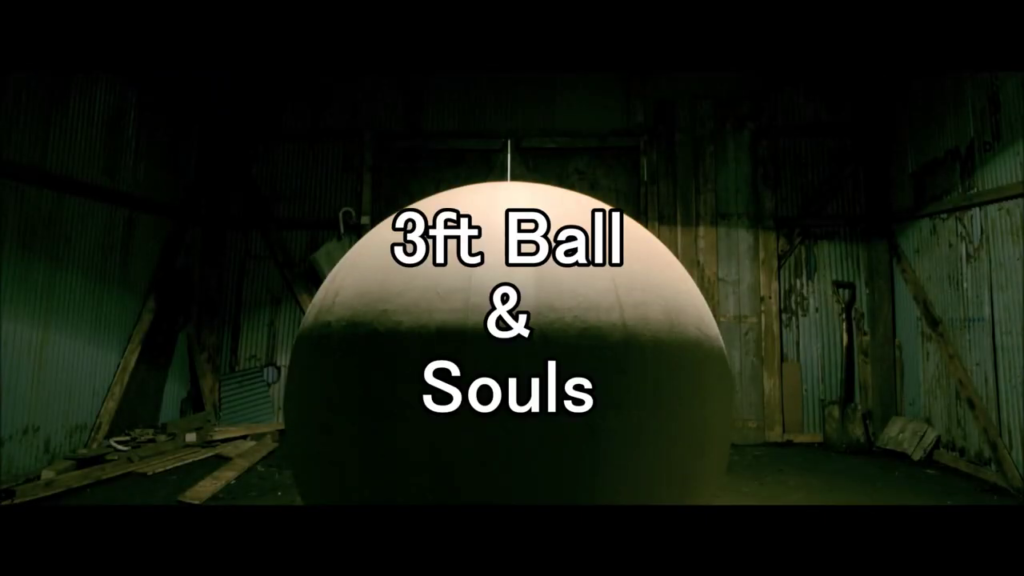

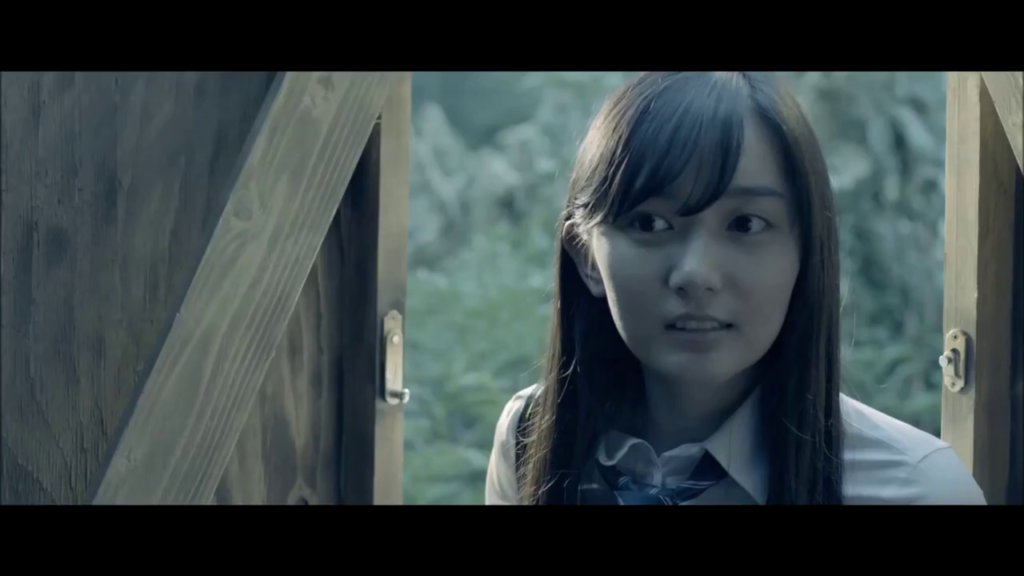
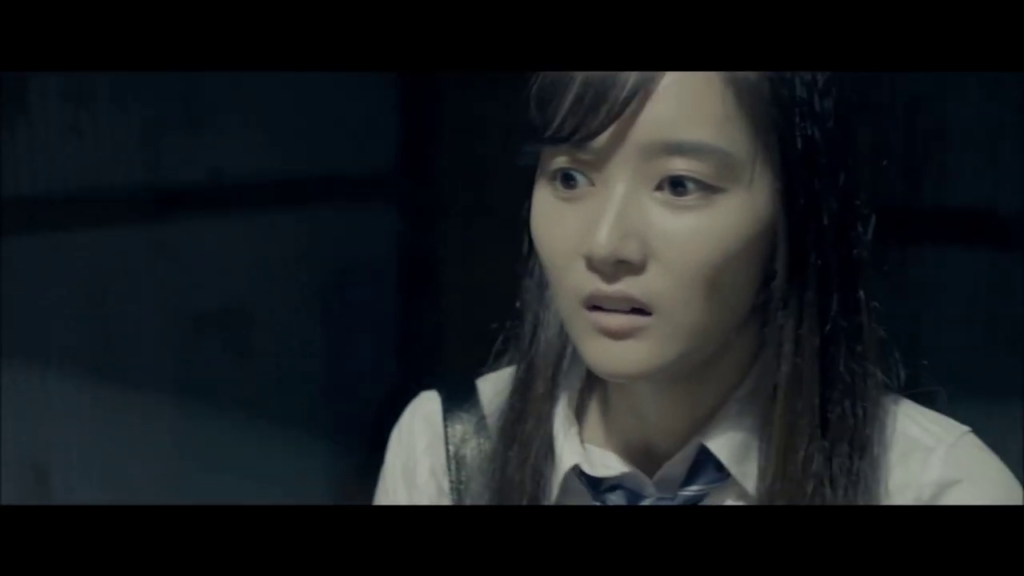
3ft Ball & Souls (2018)
Film review #596
Director: Yoshio Kato
SYNOPSIS: Four people arrange in an online chat room to undertake a group suicide. They meet in an isolated shed where one of them has brought a huge ball of fireworks to explode along with them. When the last person arrives, they realise that she is just a high school student, and the three other adults try to talk her out of it. She refuses and sets off the fireworks, but this sends the other three back in time as they all arrive at the shed. They deduce that the reason they are being sent back is because that Tsukiko, the schoolgirl, is there, and so they try and persuade her to leave before they can end their own lives…
THOUGHTS/ANALYSIS: 3ft Ball & Souls is a 2018 film. The setup of the film is fairly simple: four people, who meet in an online chat room, and agree to commit suicide together. Meeting up in a shed, one of the participants brings with him a huge fireworks ball, which he intends to explode with them all inside the shed. One by one the people arrive, until the final person arrives: a schoolgirl named Tsukiko. Uncomfortable with her joining their plan, the other three try to convince her to leave, but she is adamant she wants to go through with it, taking the detonator and setting it off. This, however, causes time to go back to before everyone gathers. As time loops at this point again and again, the three people believe that the loop is being caused by the schoolgirl’s presence, and try to convince her to leave so they can break the loop. The premise of the film is fairly simple: taking place almost entirely in this small shed, the three participants try to convince the schoolgirl to leave, with each participant recognising they are in a loop at different points of the film. The story takes an in-depth look at it’s topic of suicide that is serious and frank, with a sprinkle of light-humour to round out the characters. The sparse and limited setting supports the tone by proving few distractions, and setting the four characters around this giant ball of fireworks, which leaves them little room to hide.
As the film progresses, we learn a little about each of the characters and the reasons which have led them to this point. The story is well paced and provides enough insight into each of the characters to get you into their state of mind. The irony of these three people so willing to end their own lives trying to convince Tsukiko to not do it herself is not lost on the film, and even though everyone is the same position, they are still there for vastly different reasons, so their words don’t necessarily resonate with one another.
The film’s weaknesses are that while the film does have an in-depth dive into the topic of suicide, it lacks a kind of profound emotional depth that I think it wants to go for. It has it’s moments for sure, but overall it’s missing something to tie everything together. maybe it’s because the characters all have these very distinct personalities and reasons for being there with no overlap, which makes it obvious they are actual scripted characters. There’s also a very cultural aspect of how suicide is perceived and dealt with in japan, so you might miss a certain element of the film if you’re not well-versed in it. I think the weakest aspect of the film is the ending. Without spoiling, it ties everything together a bit too neatly, and it is one of those rare films where it would have been better if the film ended about five minutes earlier in a more ambiguous way that was still positive, but without over indulging the point. The strongest moment of the film comes near the end, when the three participants have run out of reasons and arguments to dissuade Tsukiko from going through with it, being left with the sole reason that they don’t want her to.
Overall, I thought 3ft Ball & Souls was a good film that has a good story that is well told and set up; dealing with a topic that is hard to deal with. The characters play well off of each other, and have a decent amount of depth too. The ending is a bit too simplistic and well-rounded to really gel with the rest of the film, but it doesn’t detract too much from the net positive of the film’s story, pacing and characters.
-
#595 – Contagion (2011)

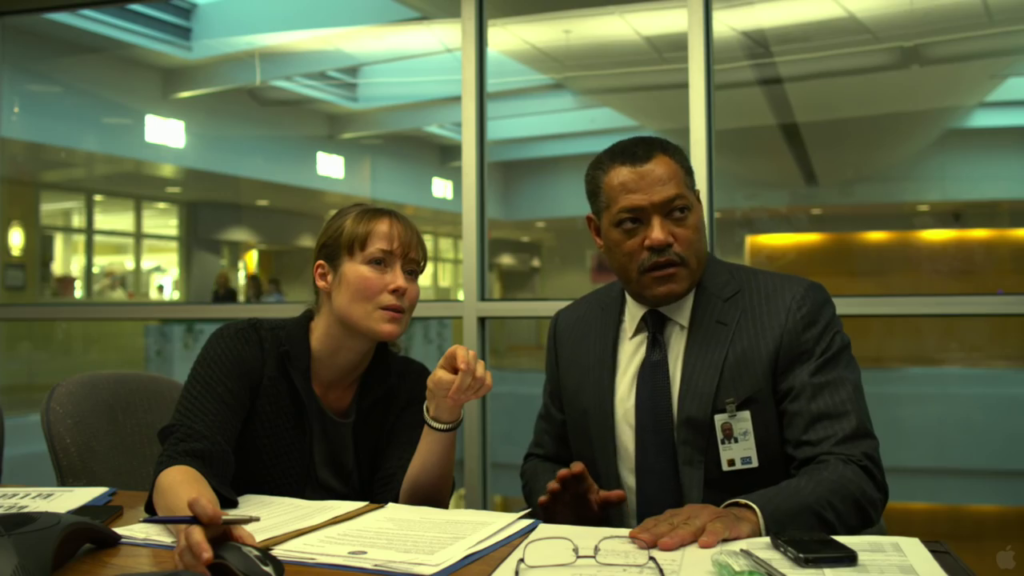
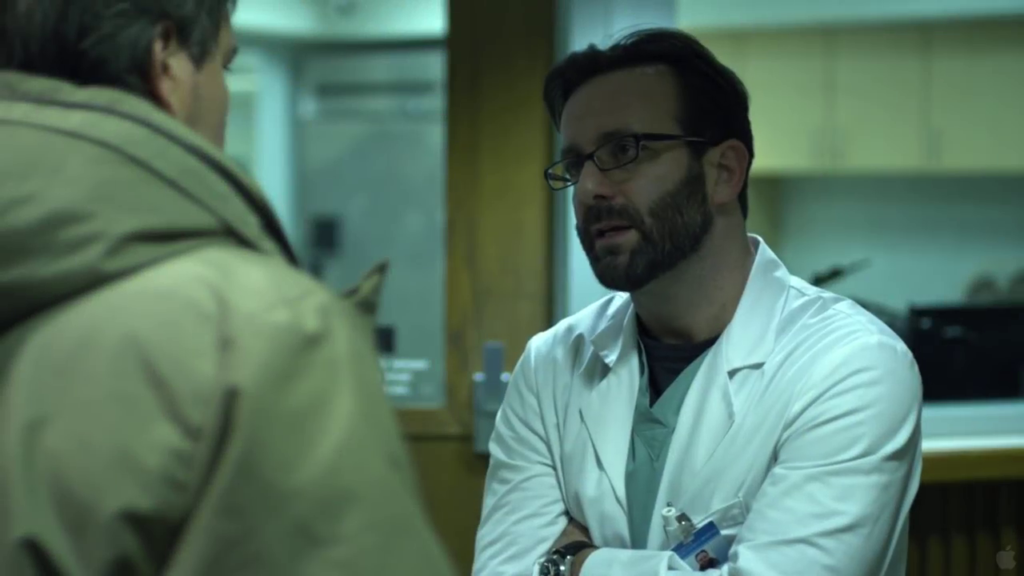
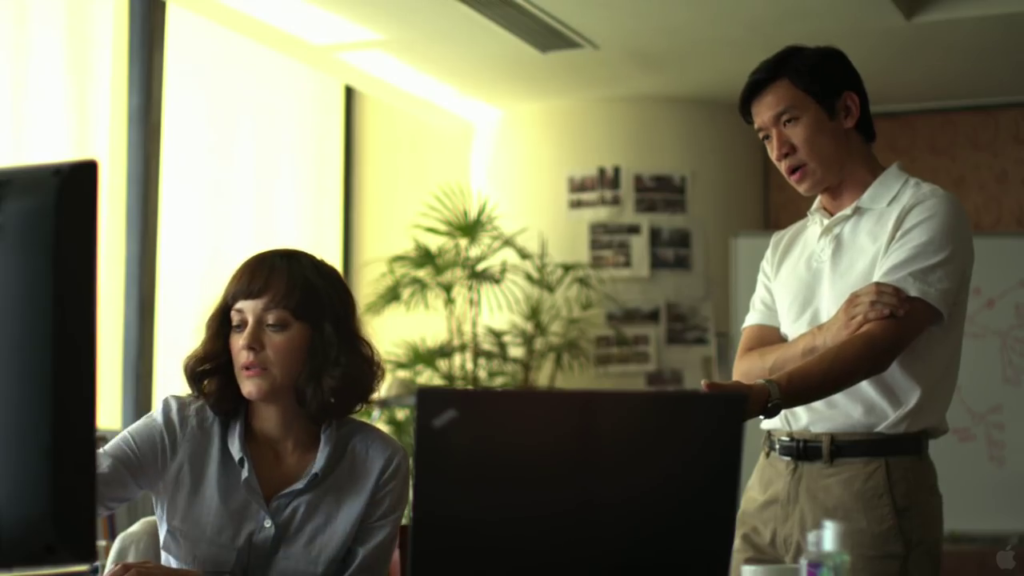
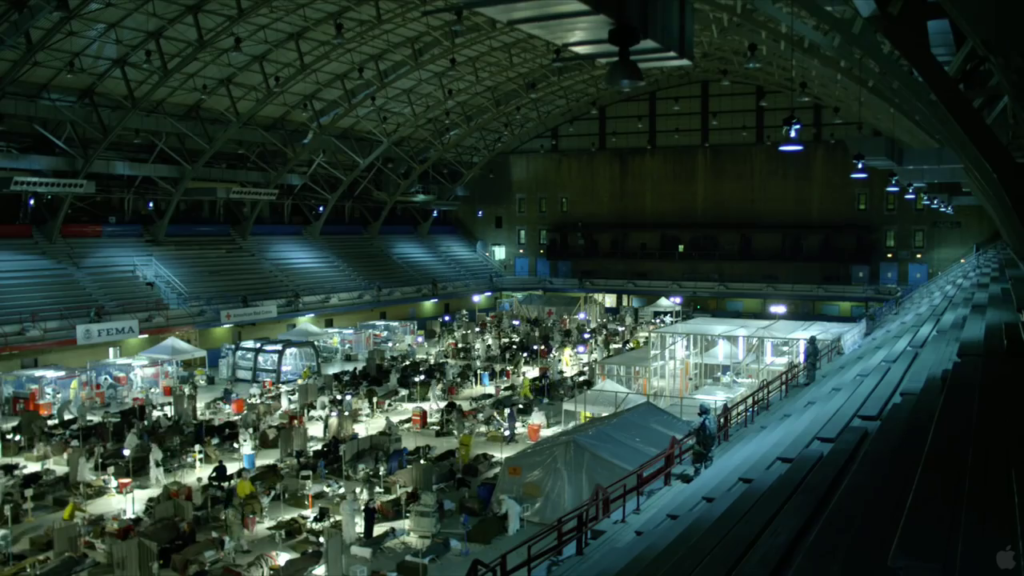
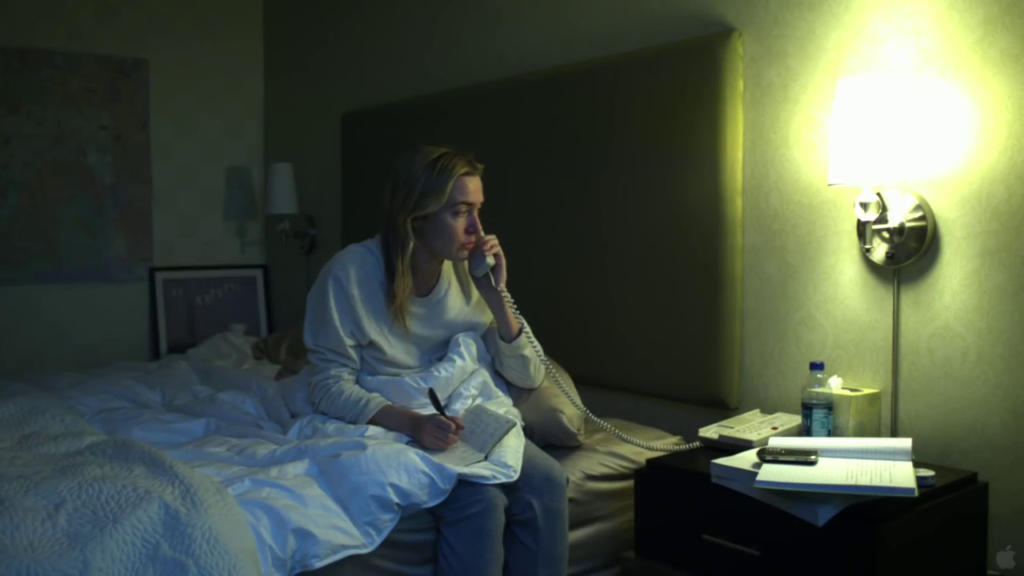
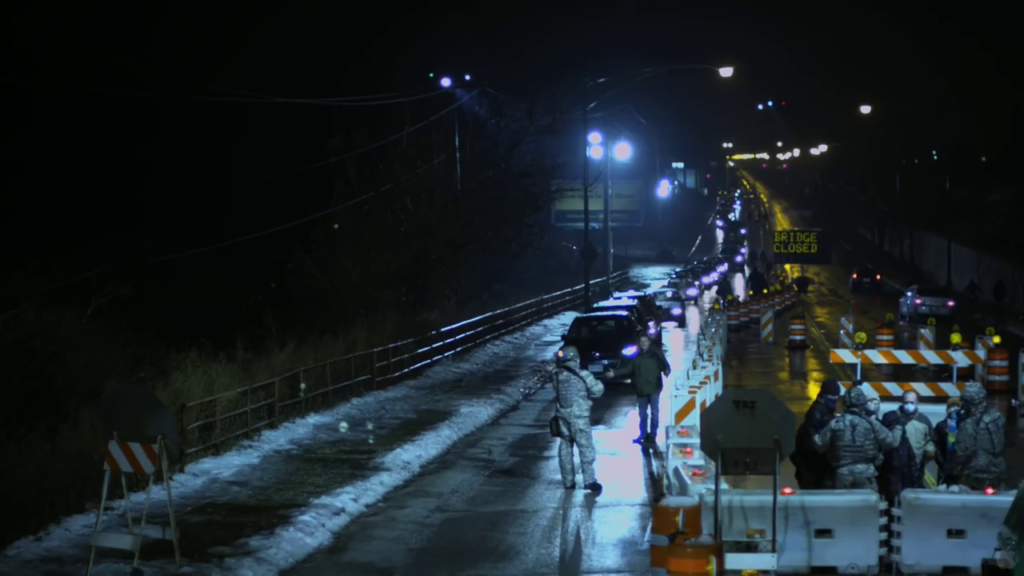

Contagion (2011)
Film review #595
Director: Steven Soderbergh
SYNOPSIS: A new virus originating in China quickly spreads around the world, leading to mass death and panic. As scientists struggle to develop a vaccine, the breakdown of social order and the rise of conspiracy theorists sets in, and the virus quickly spreads out of control…
THOUGHTS/ANALYSIS: Contagion is a 2011 science disaster film about a global pandemic, and the race to find a vaccine. Starting off in Hong Kong, the film tracks a number of characters as a mysterious virus infects and kills people around the world, resulting in a global pandemic. The core of the film follows the impact of the virus on the world’s population, but mostly on the scientists who are trying to develop a vaccine. We get a good look at a variety of perspectives in the film, although none really become the central focal point; as mentioned, each character offers their own perspective, without one taking precedence over the others. That said, there does feel like a bit of an imbalance, and some of the stories seem to be missing some scenes that would round off their particular narrative. Also, the film is very U.S. centric for a global pandemic, and we never get a sense of what is happening in other parts of the world other than the U.S. and China. On the whole though, the story is very tightly packed with different perspectives, and obviously the central plot point is the virus, not the personalities, so this narrative technique fits the film well.
I suppose it’s impossible to look back at this 2011 film now without comparing it in some way to the Covid-19 pandemic. There are a lot of similarities in the film: from the origins of the virus, a race for a vaccine, whining conspiracy theorists, social distancing, and the rate of reproduction. It’s perhaps easy to call it prophetic, but it’s actually a credit to the film’s attempt to create a ‘realistic’ scenario, and the amount of research undertaken by the director, working with real scientists to understand what they would do in the vent of a pandemic. So the film isn’t really prophetic, it’s just good research. However, it’s difficult to view the film as a “what-if” scenario when a lot of it became reality, and you’ll probably be constantly comparing it to what actually happened near ten years later. Whether this is to the film’s acclaim or detriment is up for debate. It should be noted that the ensemble cast do give a strong performance, so that’s something that allows the film to stand on it’s own. Overall, Contagion does what it sets out to do with researched precision that brings a speculative scenario to life. However, because of this, it’s proximity to actual events nearly a decade later might be a bit distracting.
-
#594 – Heart of a Dog (1976)
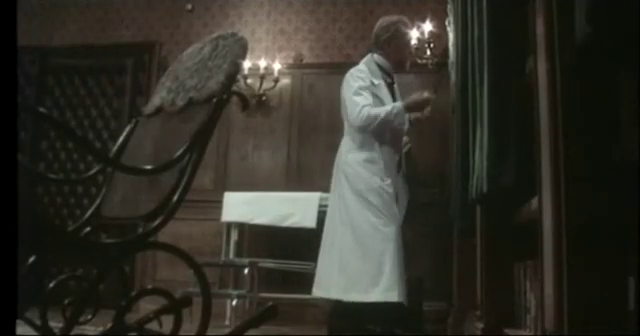

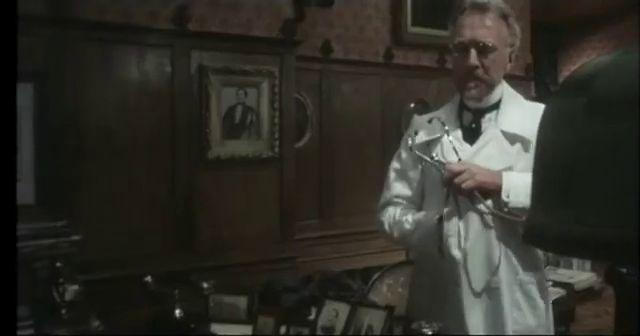

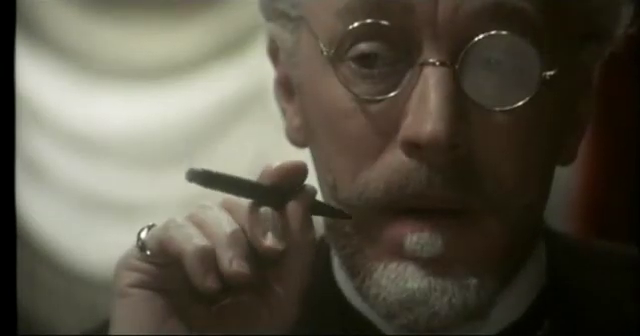
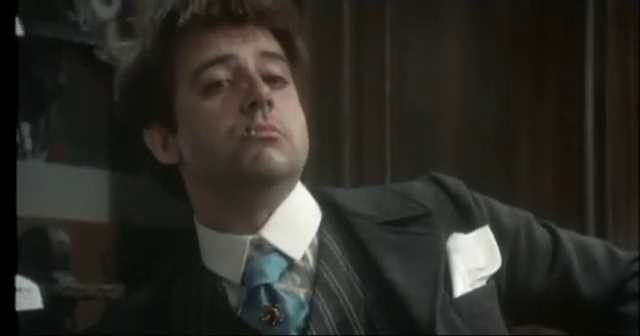
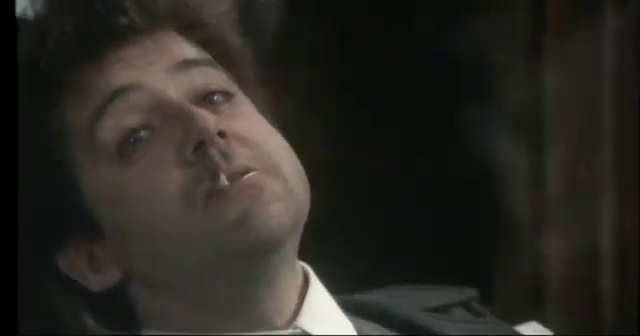
Heart of a Dog (1976)
Film review #594
Director: Alberto Lattuada
SYNOPSIS: A stray dog on the streets of Moscow is taken in by noted surgeon Professor Preobrazhensky, with the intent of using him in an experimental procedure to transform him into a human being. While the experiment is a success, Bobby, as the Professor has called him, quickly becomes an uncontrollable nuisance, leading to constant tension between him and the Professor…
THOUGHTS/ANALYSIS: Heart of a Dog is a 1976 Italian comedy film based on the 1925 novel of the same name by Mikhail Bulgakov. It is the first adaptation of the film, released while the novel was still banned in its native Soviet Union, and likewise before the release of the successful 1988 film adaptation made there. The story follows the novel fairly closely, with a stray dog being taken in by Professor Philip Philipovich Preobrazhensky, a surgeon who has been performing operations to transplant animal organs into humans to replace them. His next experiment involves the reverse: transplanting human body parts into a dog. The result is that the dog transforms into a human form, but unfortunately for the Professor, his subject’s views are vastly different than his own, setting up a classed-based conflict between the two. The story is fairly close to the novel, with only a few minor changes I noticed compared to the 1987 film, which is a very strict and accurate translation. The tone is perhaps a little lighter as it is geared to more of a comedic approach to the source material, but it still has a fair amount of grit to it in reflecting the state of the Soviet Union at the time. It’s never really laugh-out-loud funny, but you certainly get the point of the scenes and what they are satirising, without it biong too direct and literal.
The main issue with this film is actually nothing to do with the film itself: it captures the beats of the novel and its message fairly well. The problem is it just can’t compete with the version made in the Soviet Union ten years after this version: the whole point of the film relies so much on the time and place it was set, and an Italian/German co-production will never be able to compete. An issue with the film itself is that the latter half doesn’t really have too much of a direction, and is just scenes of Bobby and Philip arguing with one another about different things. The performances, including Max Von Sydow as the Professor are good, But again, in a choice between this version and the 1987 version, you’ll always choose the latter. This 1976 version does everything it needs to do, but without that context of being set in the Soviet Union and being made by those who understand and lived through the source material, this version will always come up short.
-
#593 – Heart of a Dog (1988)
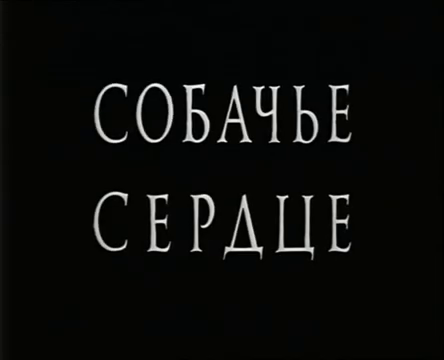
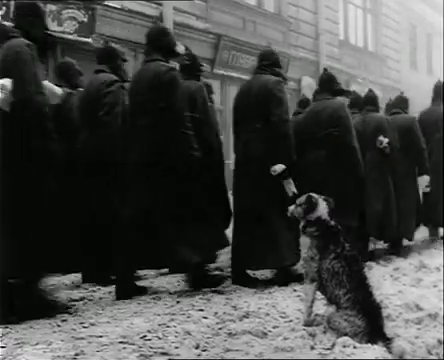

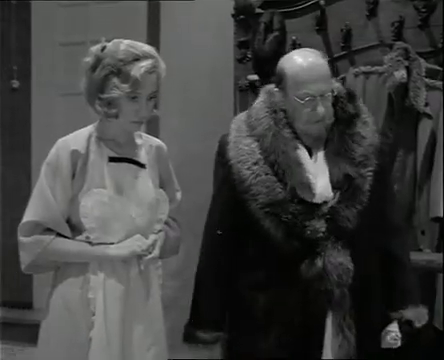
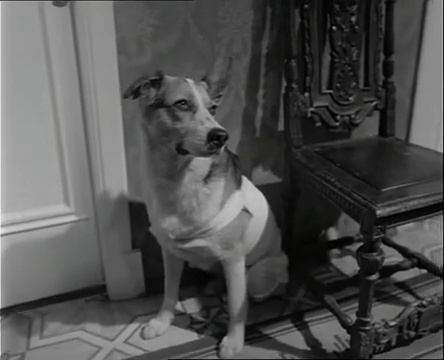
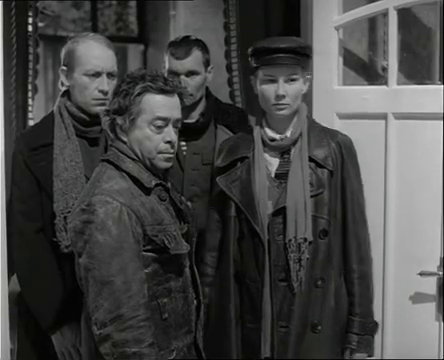
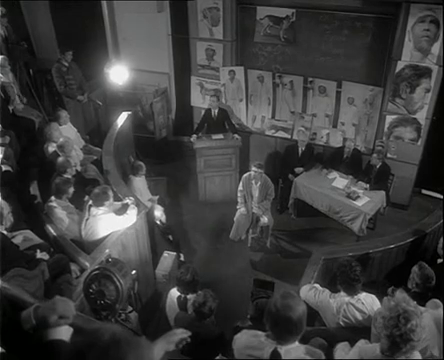
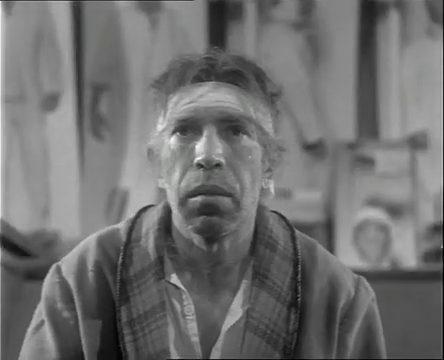
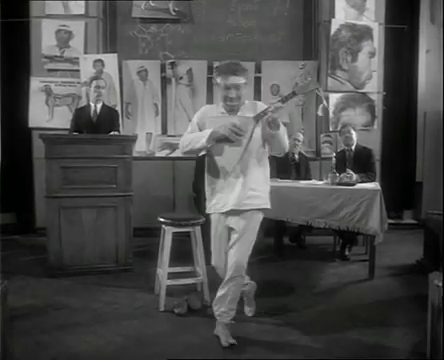
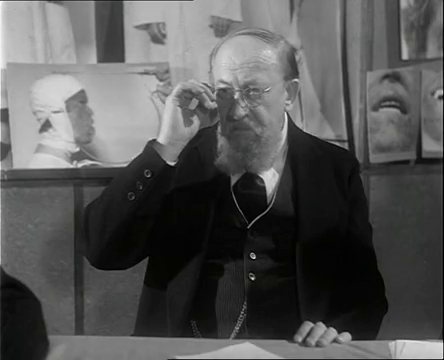
Heart of a Dog (1988)
Film review #593
Director: Vladimir Bortko
SYNOPSIS: A stray dog living on the streets of Moscow not long after the October Revolution is taken in by a surgeon. However, the surgeon intends to use the dog as part of an experimental procedure to turn him into a human being, transferring the pituitary gland and testicles of a recently deceased man into the canine. The experiment becomes a success and the dog becomes almost human, but he is not the person that the Professor intends him to be, and their differences start to quickly show…
THOUGHTS/ANALYSIS: Heart of a Dog is a 1988 film based on the 1925 book of the same name by Mikhail Bulgakov. The book was rejected for publication in the Soviet Union due to its allegorical critique of the communist revolution. The book was eventually released in 1987, and quickly became a phenomenon in the Soviet Union, which was now moving away from the communist practices through its reforms. This made-for-TV movie was released a year later to similar applause. In the beginning, we see a stray dog wandering the streets, hungry and alone, and his situation does not seem much better than the regular people on the streets, making the point that people’s lives did not really get much better for ordinary people after the October Revolution. The beginning of the film is bleak, make no mistake, but this again is by design, and you’ll need to stick with it if you want the tone to change. The dog, named Sharik, is found by a bourgeois Professor and surgeon named Philip Philippovich Preobrazhensky, and he takes him home. However, Philip has plans for the dog in an experimental new procedure in which he will transplant the pituitary gland and testicles of a recently dead man into the dog to observe its effects. What occurs is the dog starts to slowly morph into a human in a scientific breakthrough. The results of this, though, are that Sharik is far from the bourgeois Philip in terms of his behaviour and mannerisms, setting up humourous and allegorical conflict between the two. The science-fiction element of the film is not really the focus of the plot, but rather again serves as an allegorical device for the author’s criticisms of class and revolution.
One key thing to note about the film is that it is deeply entrenched in the time and place it was written: if you have no idea about the Soviet Union, the October Revolution, and the like, a vast chunk of this film is going to pass you by. Professor Philip, an ‘enlightened’ bourgeois is horrified as Sharik turns out to be a worker (which perhaps shouldn’t be surprising as he is/was a stray dog), but as this enlightened individual, never considers violence as an option, lest he become like the proletariat he dislikes so much. As mentioned, the original novel is more critical of the workers and their revolution, and pokes fun at them also, with their committees and constant need to break into songs about the revolution at every given opportunity. No one really escapes being poked fun of in the film, but again, it’s all very much rooted in the time and place it is set, so those outside of it aren’t going to get all of the small references and critiques.
This film is noted for its faithful adaptation of the original novel: it leaves nothing out, and only changes a few small details. The acting is solid, and the characters, while obviously exaggerated versions of the class archetypes they are meant to represent, don’t stray to far into being cartoonish, allowing the film to retain a sense of realism and relatability. Likewise, the comedy is drawn out through the character’s being constantly at odds at each other, and their own ideologies being their undoing, rather than a laugh-out-loud type of humour. In terms of production, the acting is solid, even the dog is played by an “acting dog” who had played in numerous films. Everything about the production is professional, and it’s difficult to find any significant flaws in the film as a whole. The enjoyment of Heart of a Dog certainly depends on how much you know about the context and setting of the film: there’s so many slight references and nuanced moments that entrench it so deeply in the early days of the Soviet Union, but the larger beats of the film do have enough for unfamiliar viewers to latch onto, and a high-quality production overall makes it an interesting and enjoyable film.
-
#592 – Press Play (2022)
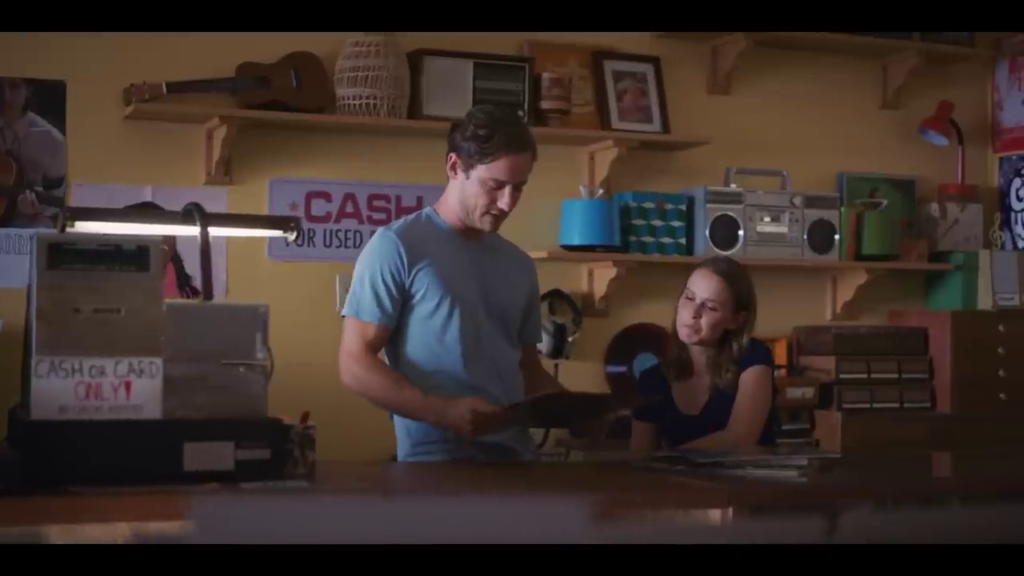
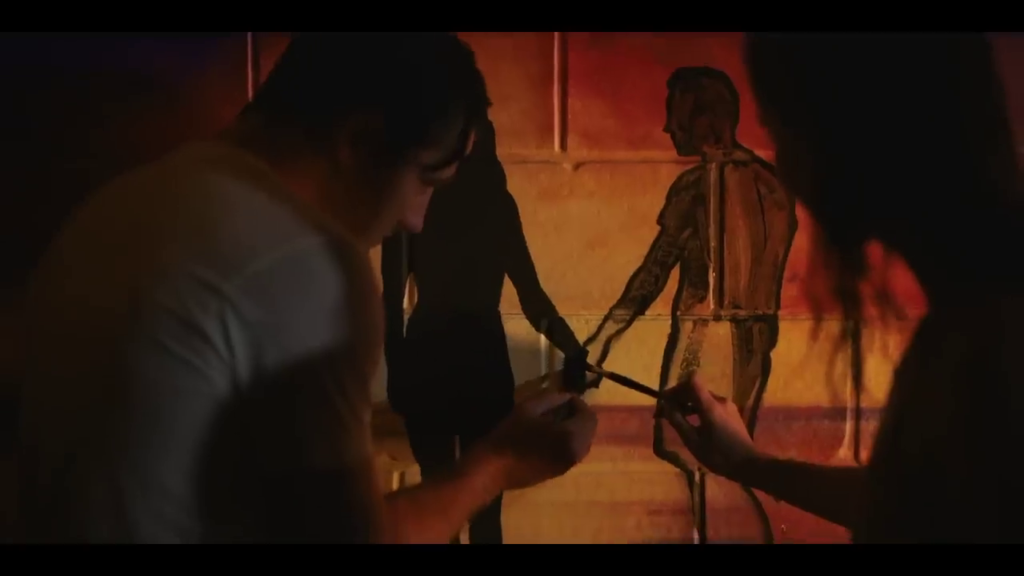

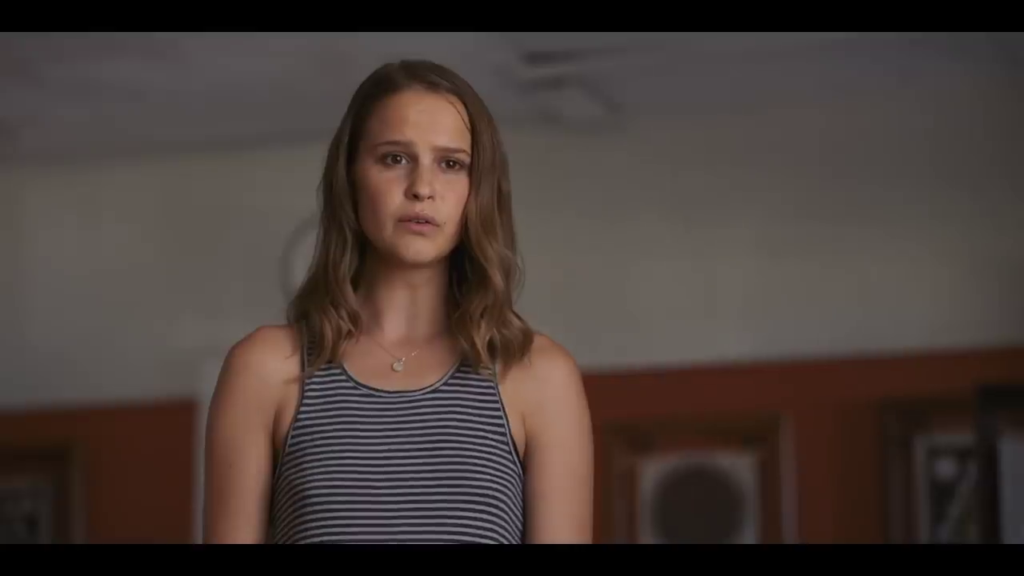
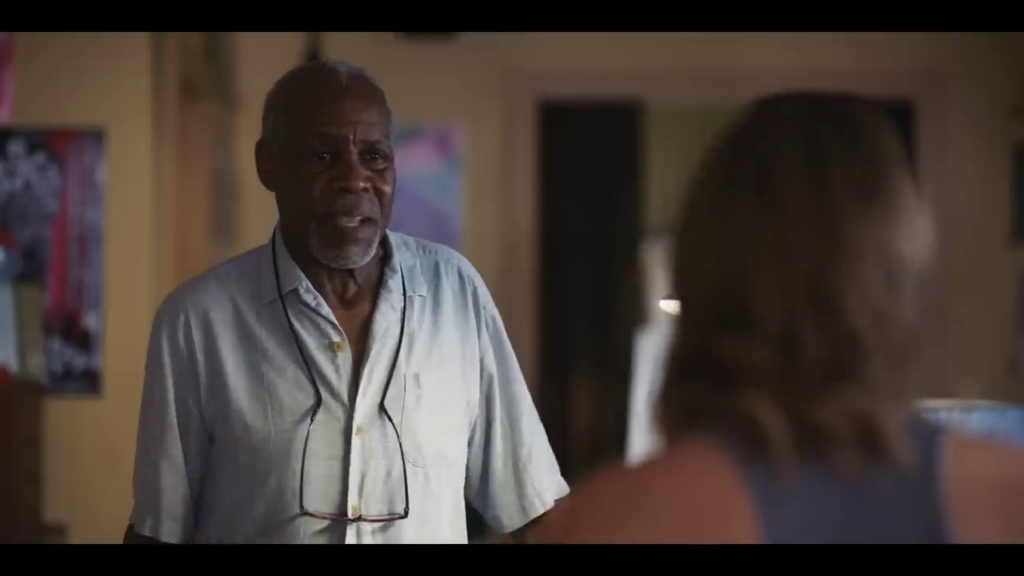

Press Play (2022)
Film review #592
Director: Greg Björkman
SYNOPSIS: After her partner dies in an accident, Laura learns that the mixtape they made together can transport her back in time, giving her a chance to save him. But things quickly become more complicated than they first seem…
THOUGHTS/ANALYSIS: Press Play is a 2022 sci-fi romance film. Laura is set up with her friend’s brother Harrison, from which a romance blossoms. Things come to a tragic end when Harrison dies in an accident, but Laura (some four years later) finds that the mixtape they made together can transport her back to specific points of time relevant to each song on the tape. She uses this chance to go back and try to save his life, but every time she intervenes it creates another problem. We see the from the start how the two meet and their relationship develop, but the main issue of the film quickly emerges from this: One, we are only shown the key events in their relationship one after another, squeezed into the first twenty minutes, which just feels like you’re moving from one moment in time to another without any real connection, and no time or space or a relationship or onscreen chemistry to develop organically. As such, there’s a lack of investment in the relationship and characters, and everything is a little fragmented. I get that it is partly this way because it has to reflect the mixtape of having songs that are part of important parts of their relationship, but without something to bring them together, it just flat out doesn’t work. The concept of the time travelling mixtape is interesting, but very much underutilised and underexplored. There’s a part where Laura decides to read up on the theory of time travel (as you do), but nothing really comes of it, and it doesn’t add anything to the plot. Keeping the mechanics of time travel relatively light might be so as to not alienate the viewers are there for the romance genre, as nothing is as offputting as being overwhelmed by technical jargon. As mentioned though, the romance element is severely underdeveloped as well. The acting isn’t the problem on the whole, and Clara Rugaard as Laura does a good job. Lewis Pullman as Harrison really doesn’t convince with the more emotional moments though, and always feels like he is just acting. Whether it is him, or the direction he is given, he just doesn’t portray quite the right emotion.
For a film that relies quite a lot on music, the soundtrack on the whole is fairly bland and forgettable. They never really discuss (apart from the first song) who the band playing are, or what the song really means; it just happens to be playing by coincidence at certain times. It is perhaps inescapable to compare to a film like Hi Fidelity, which also had the concept of music and relationships at its core, but that film allowed the viewer to build up a picture of the main character based on his music interests, using familiar songs. In Press Play, we have artists and songs you’ve probably never heard, and which sound all a bit too familiar. The lyrics of the songs almost always just verbalise what is happening in the film at that moment, leaving little room for interpretation, and it all just feels a bit on the nose. Also, I can’t help but notice a few elements borrowed from the Life is Strange video game, including the time travel, the indie soundtrack, and even the credits using a very similar font and animation. I’m not the only person that sees this apparently either. I don’t think Press Play is meant to be an emotionally heavy film, but it really does keep everything light in all regards: the onscreen chemistry between the actors is not there, the relationship lacks depth, there’s no real humour to break things up, and the science-fiction element isn’t grappled with to give the film a novel twist.
